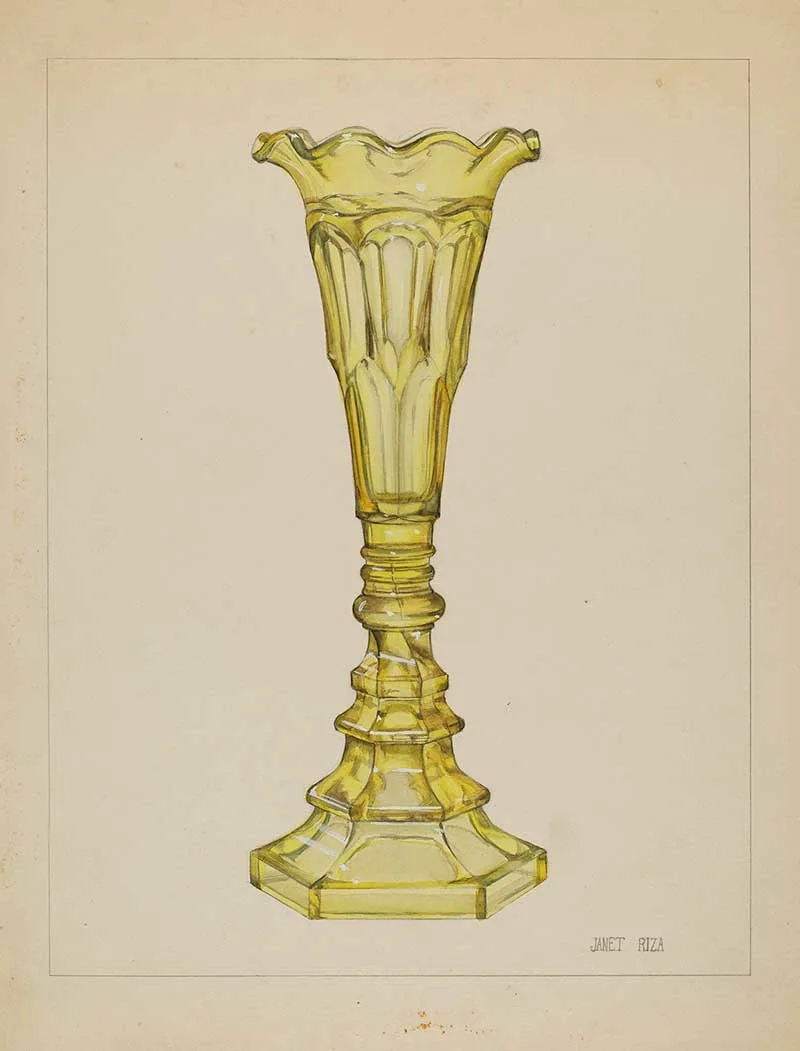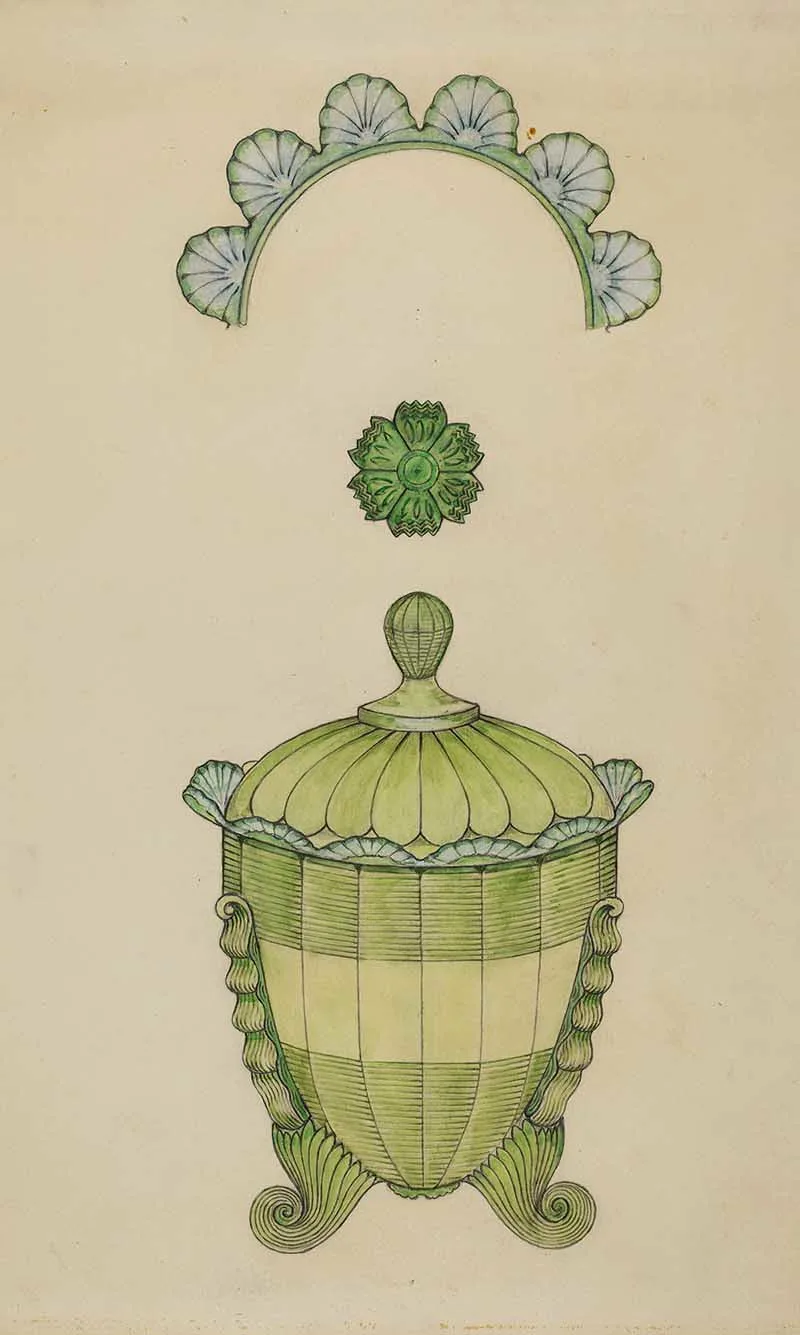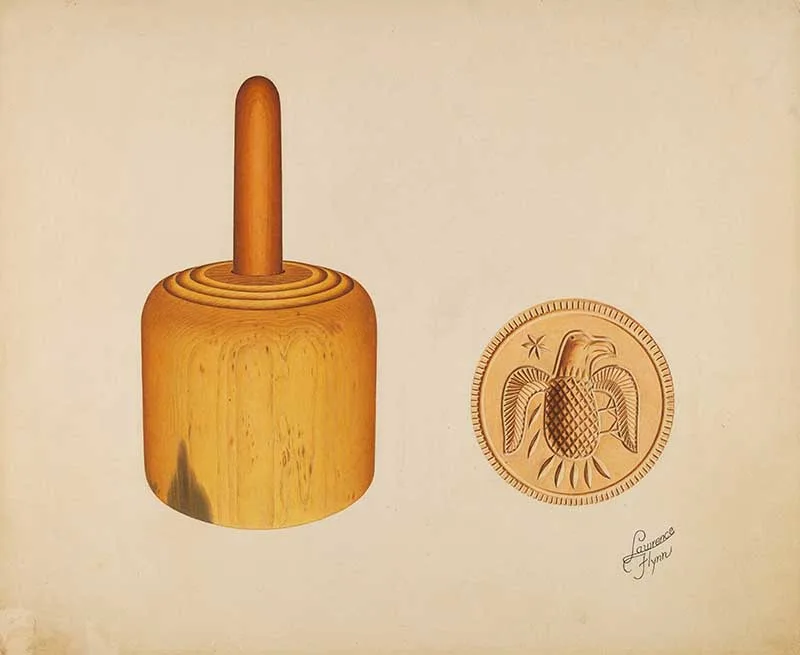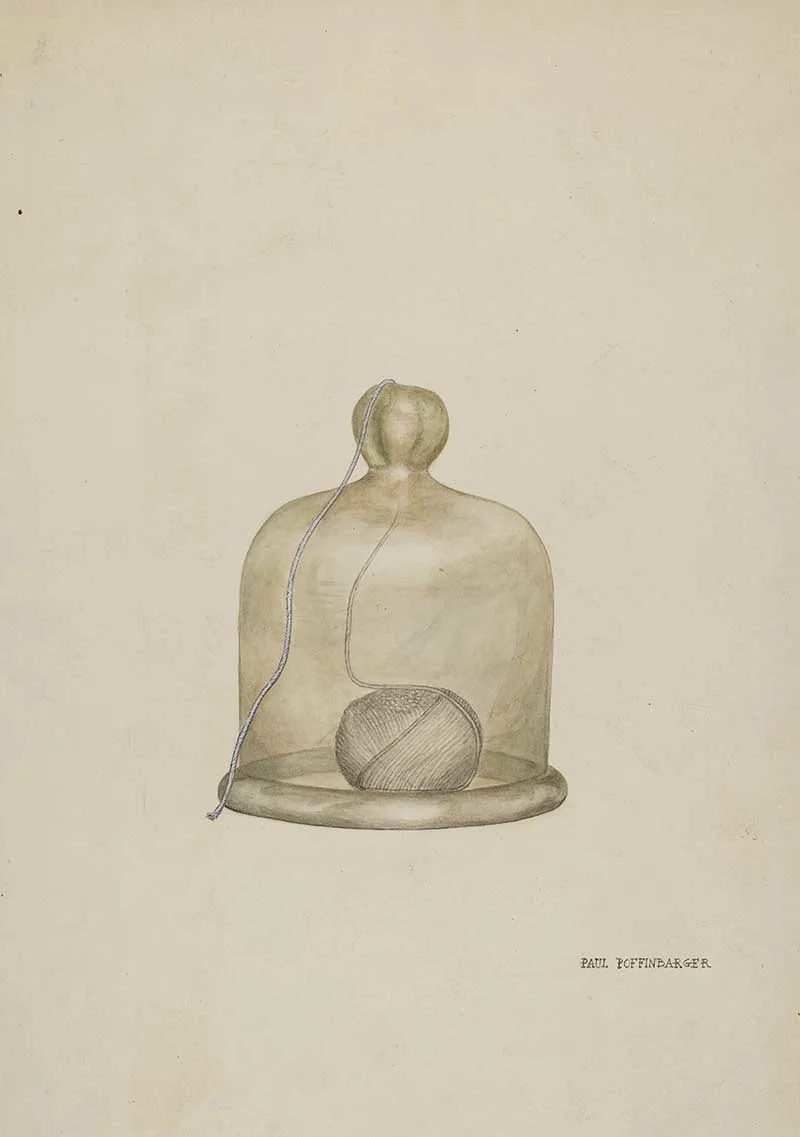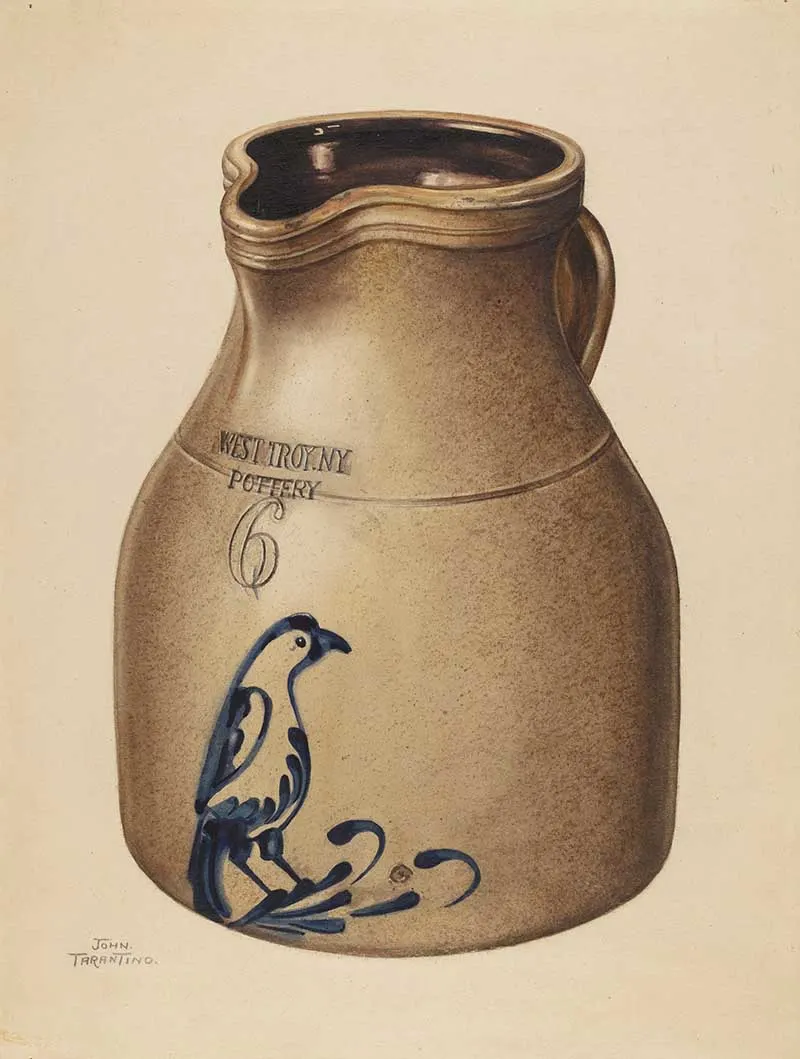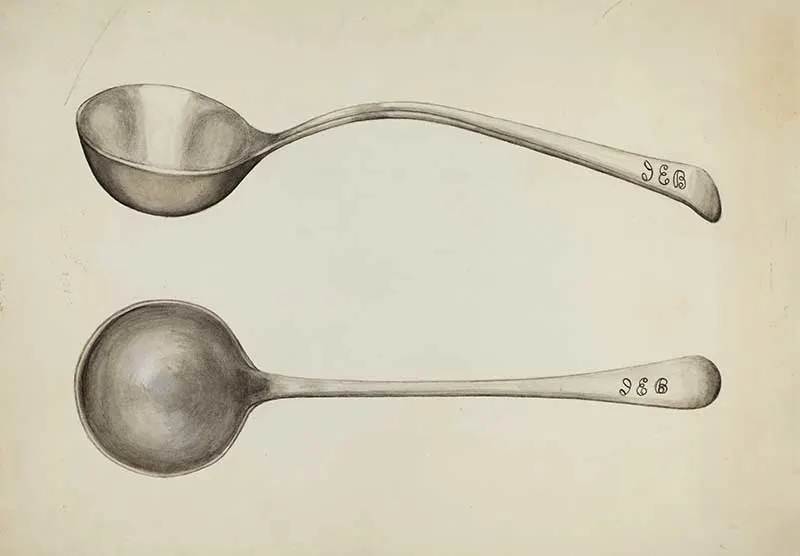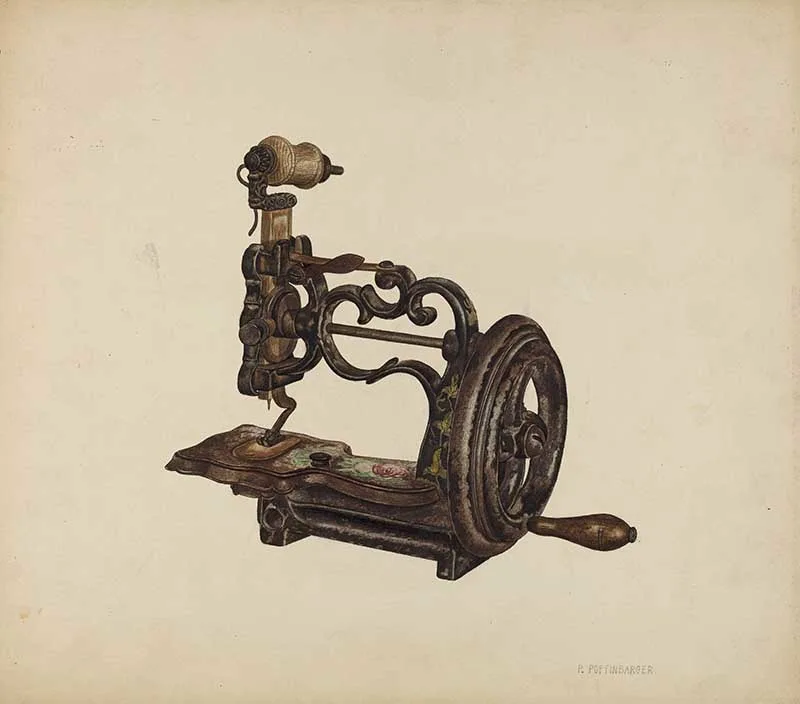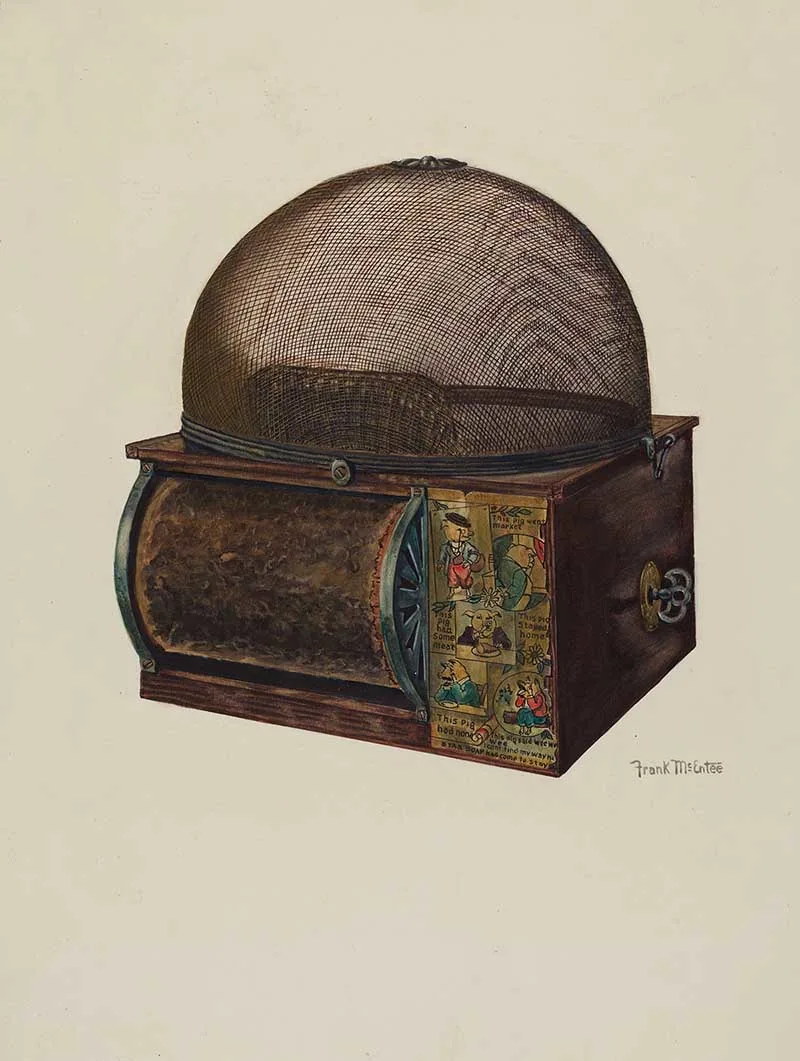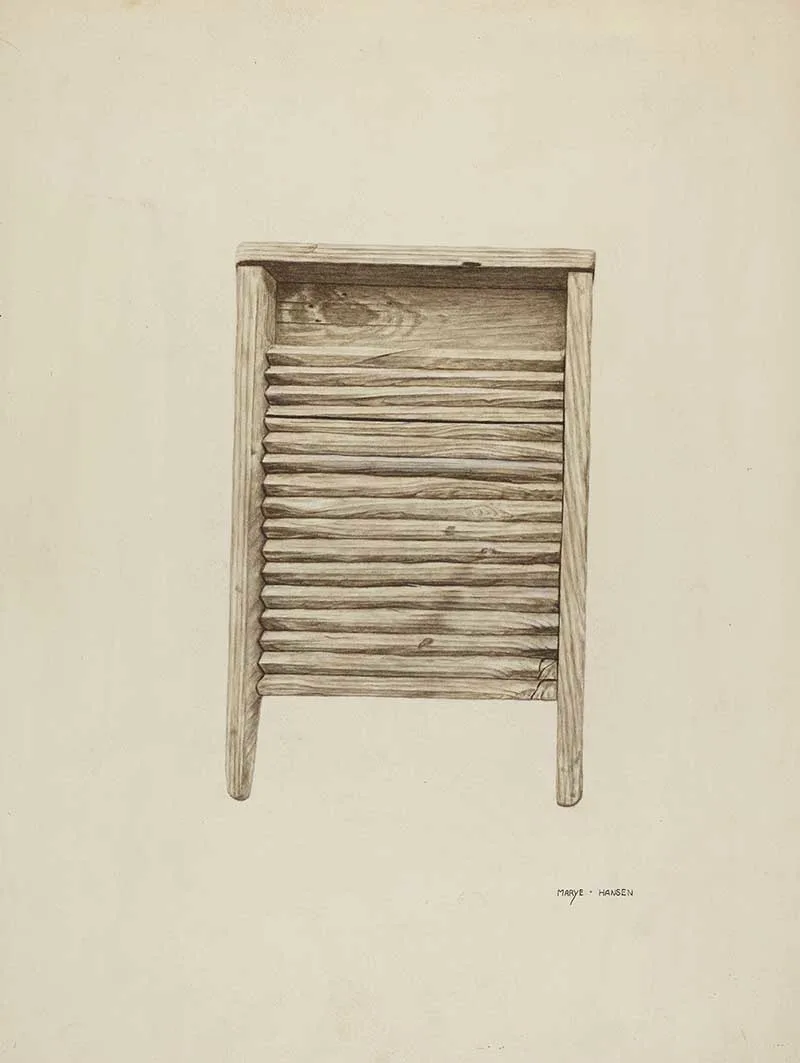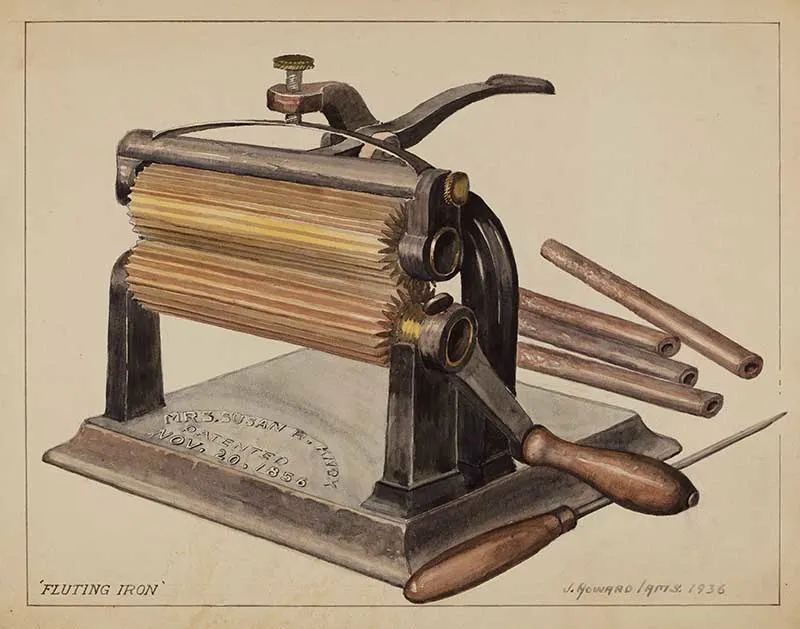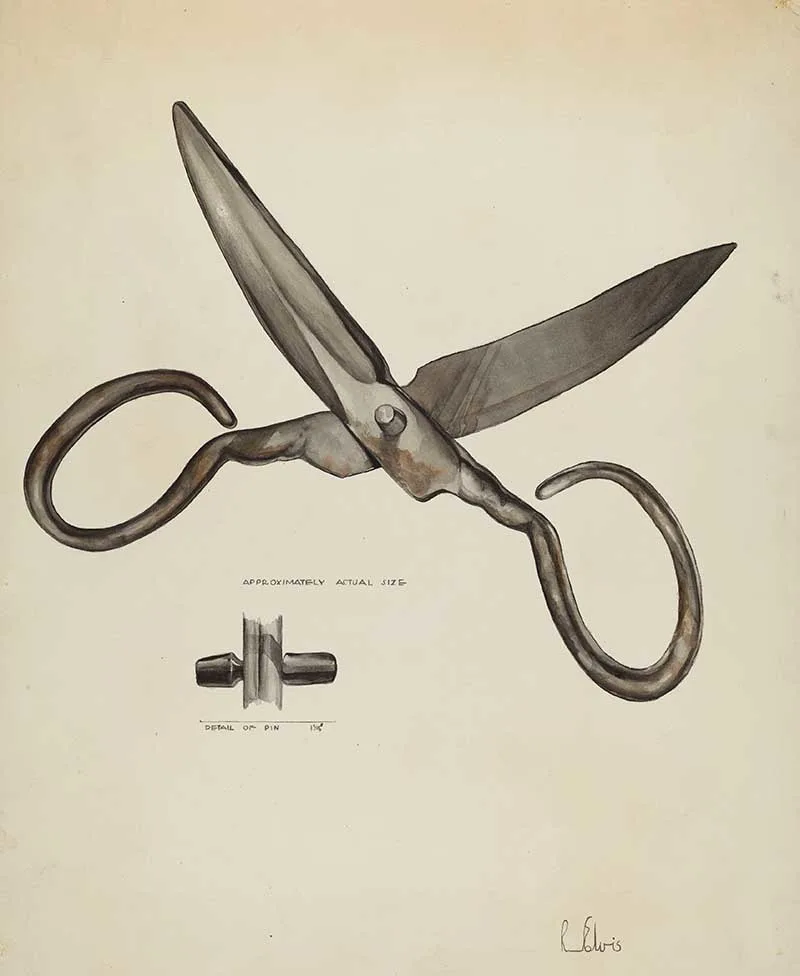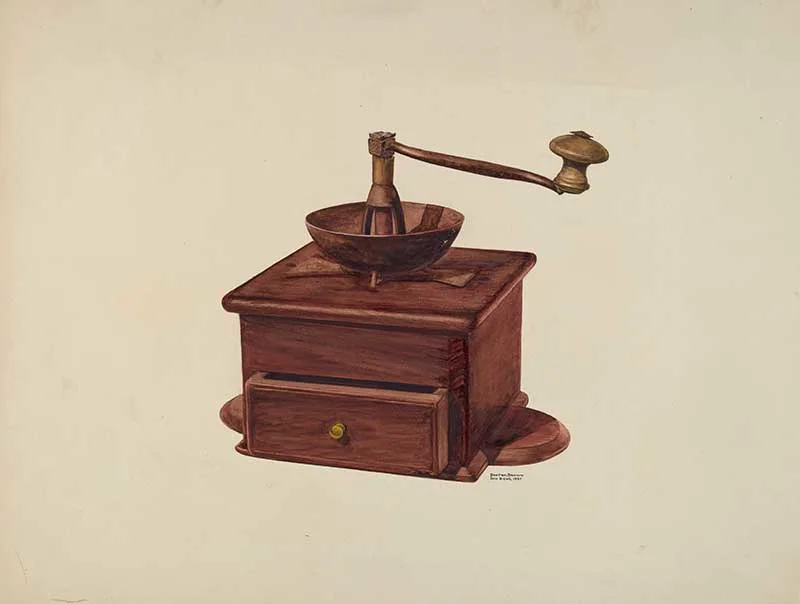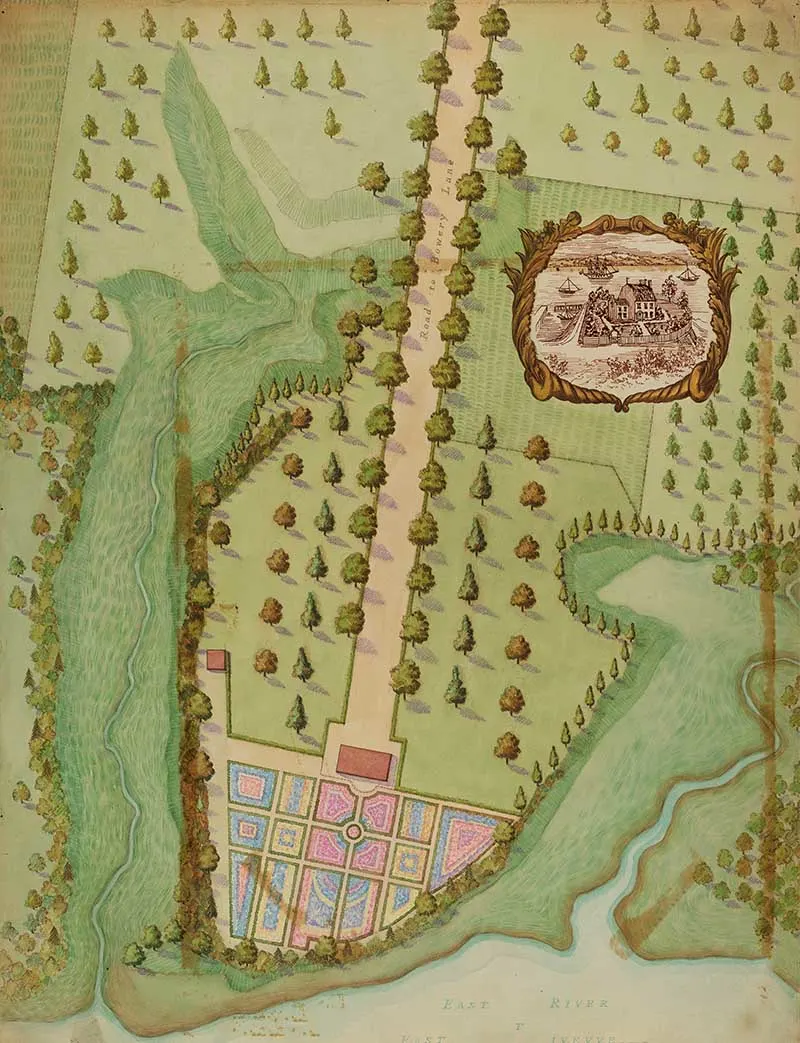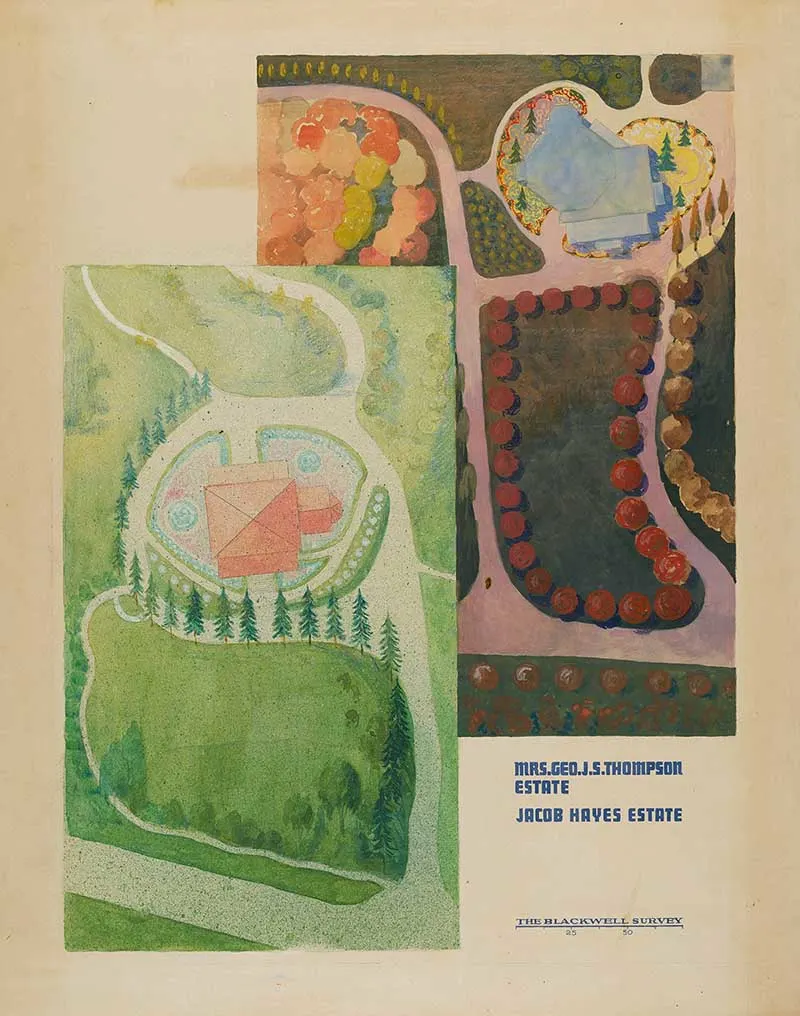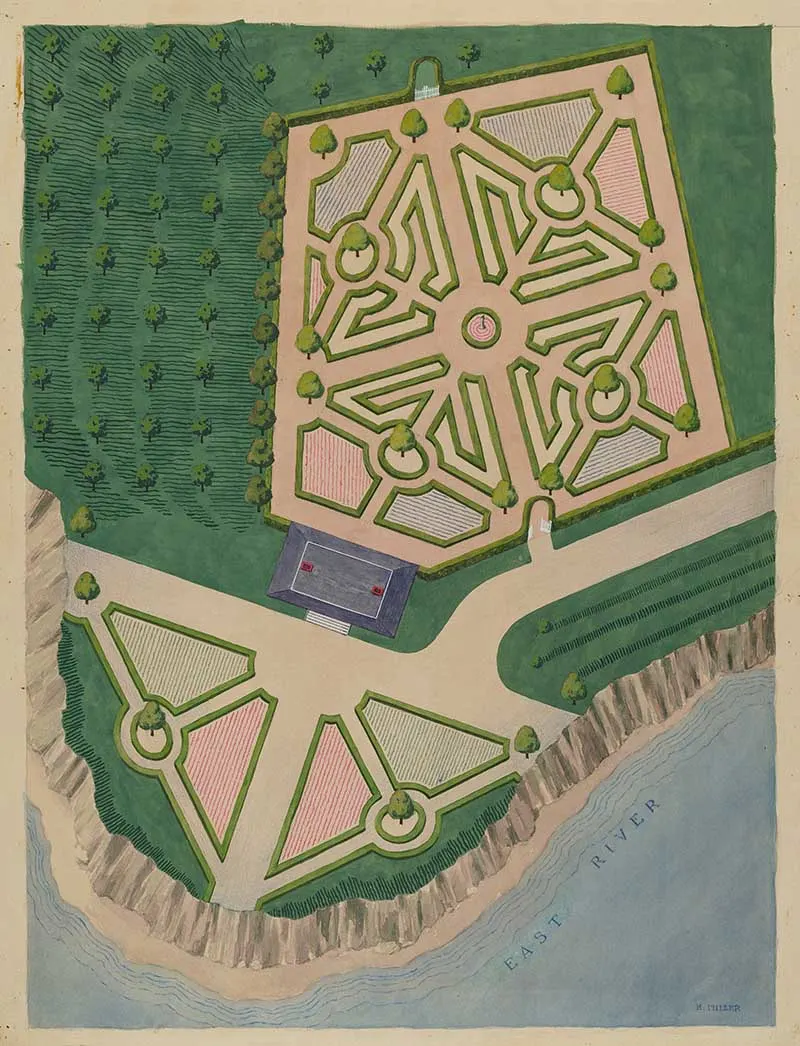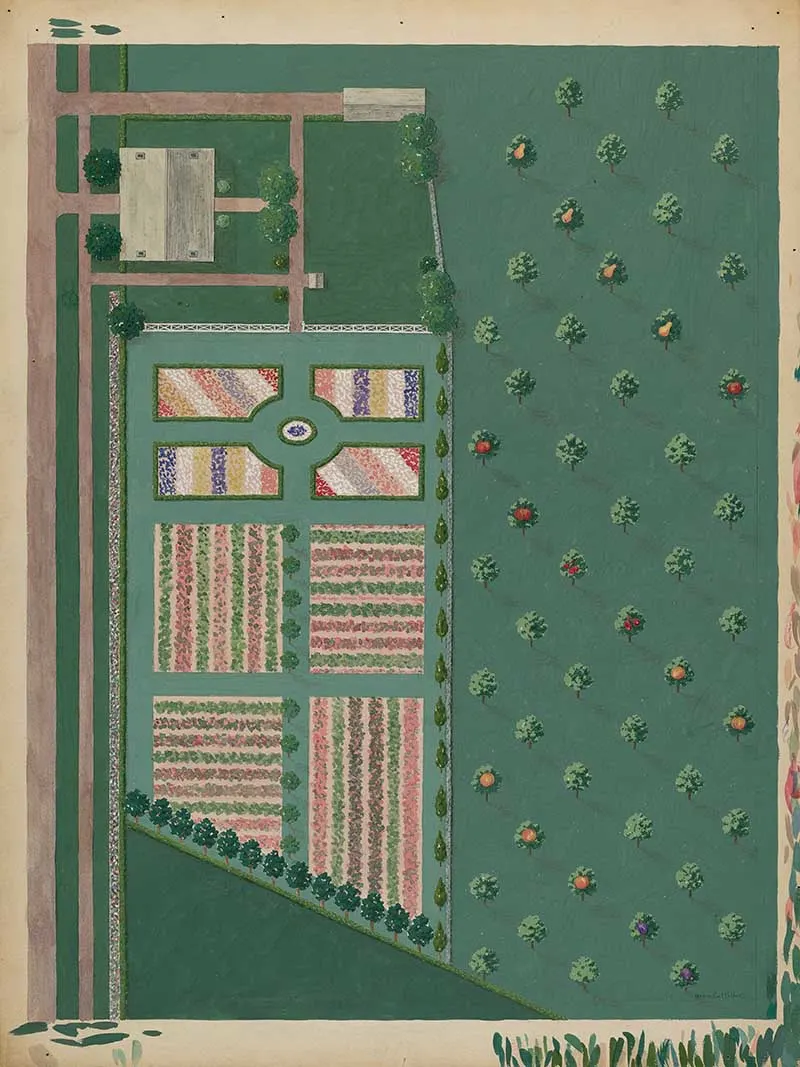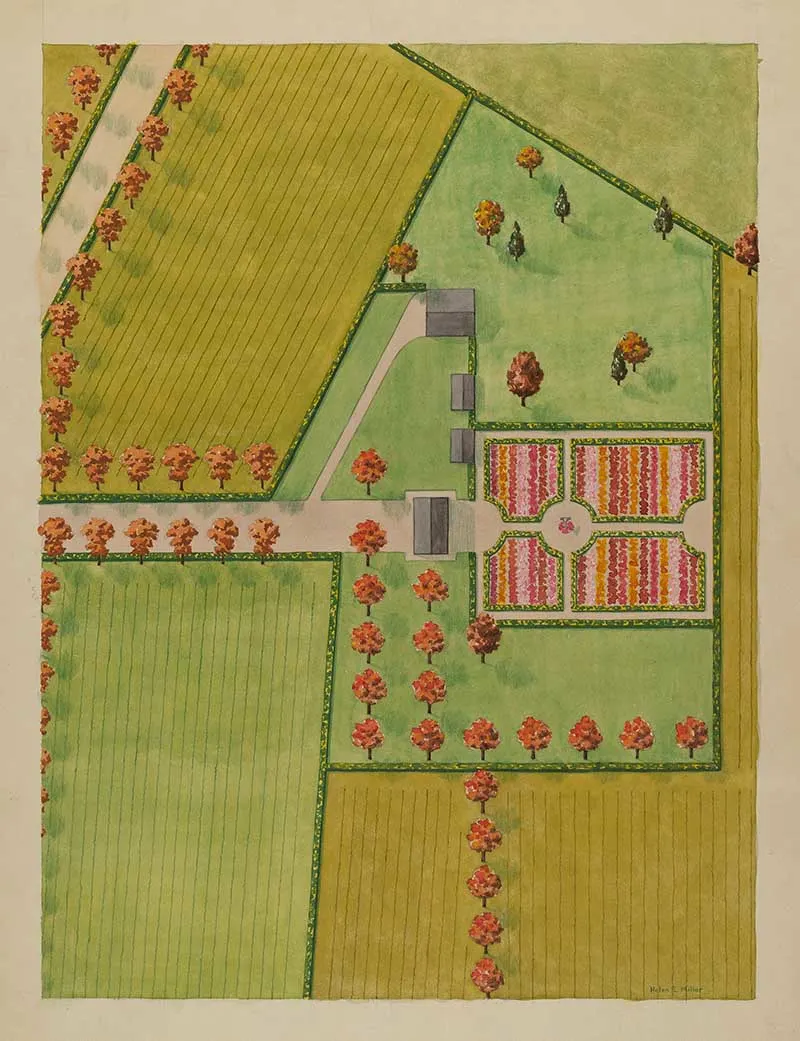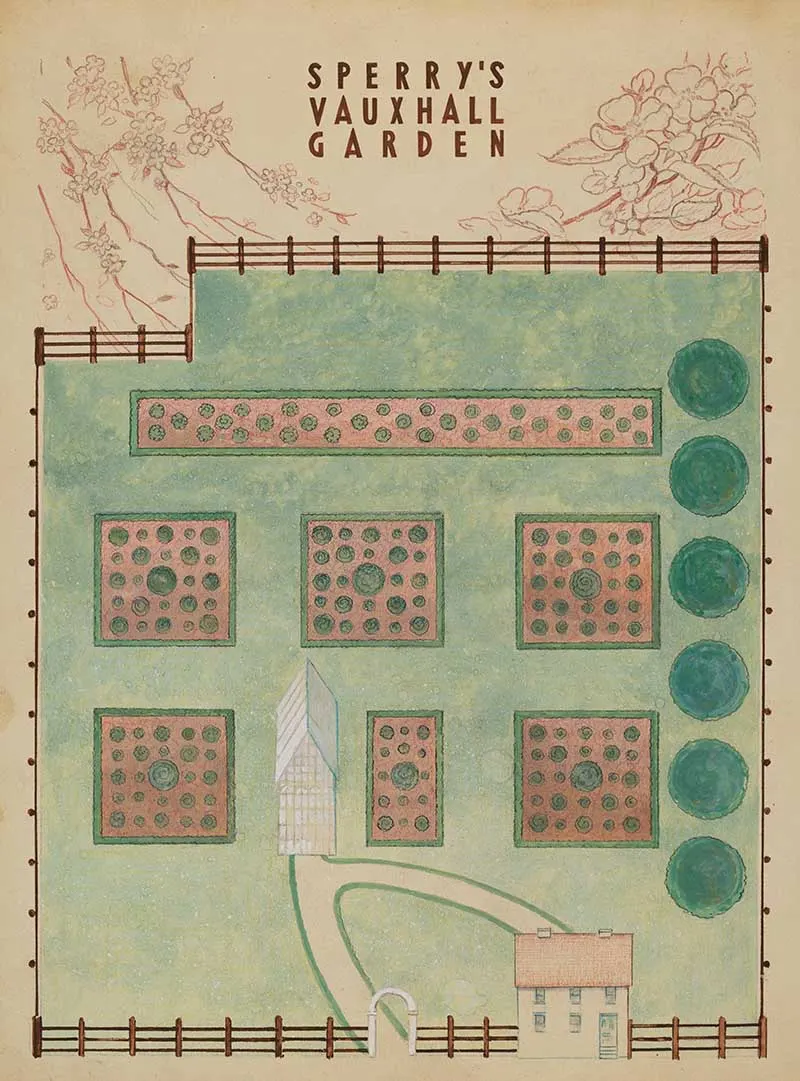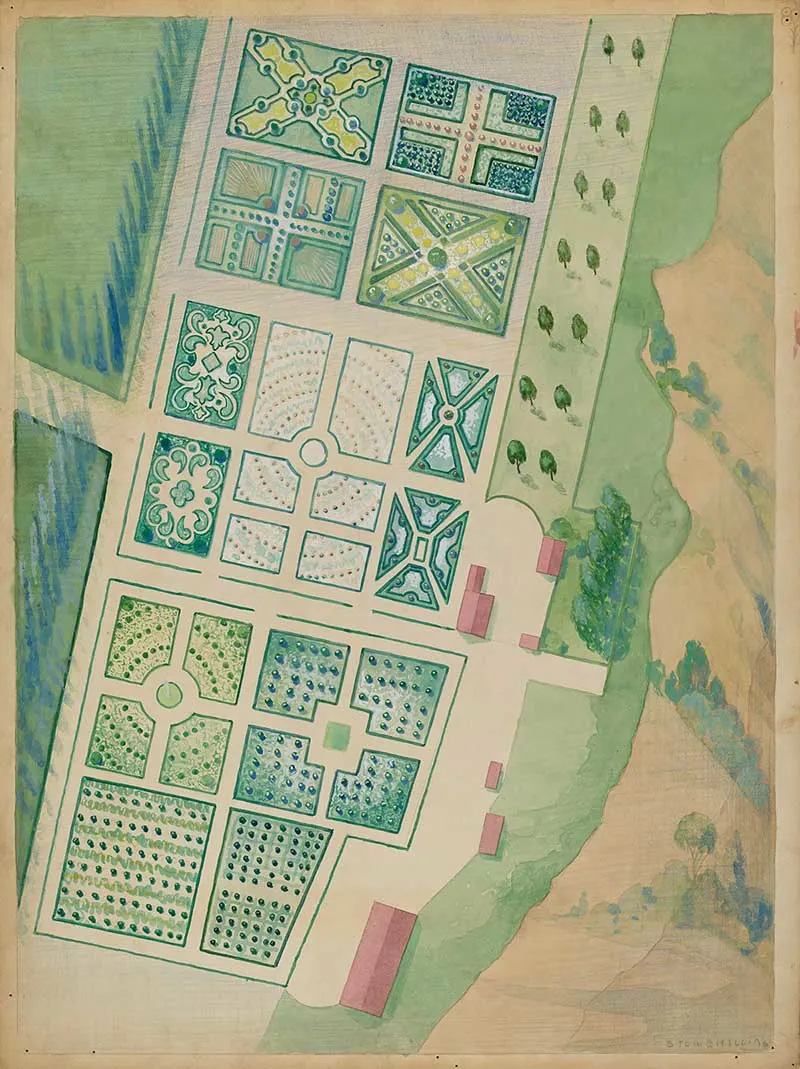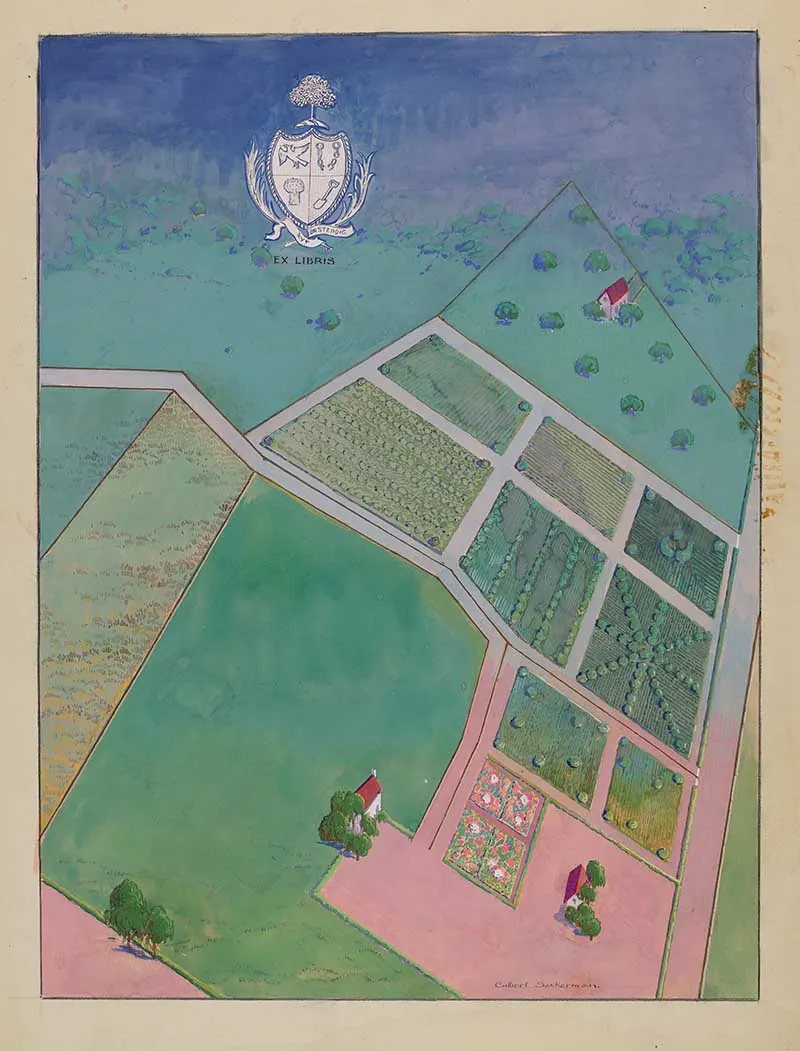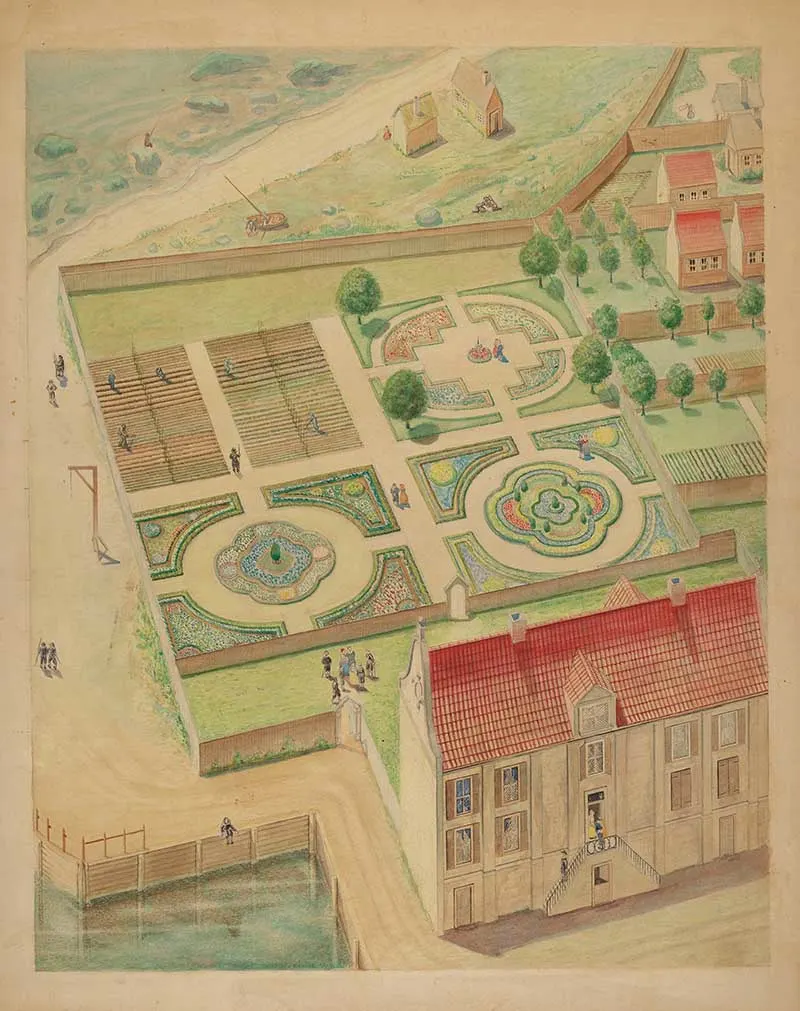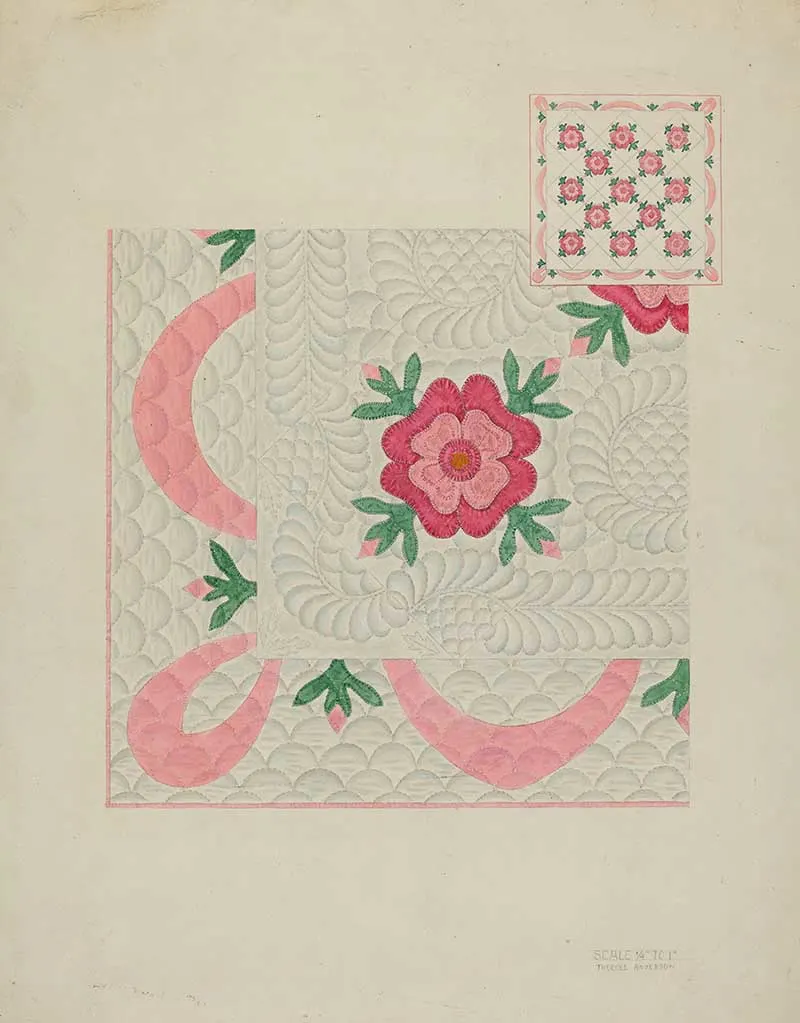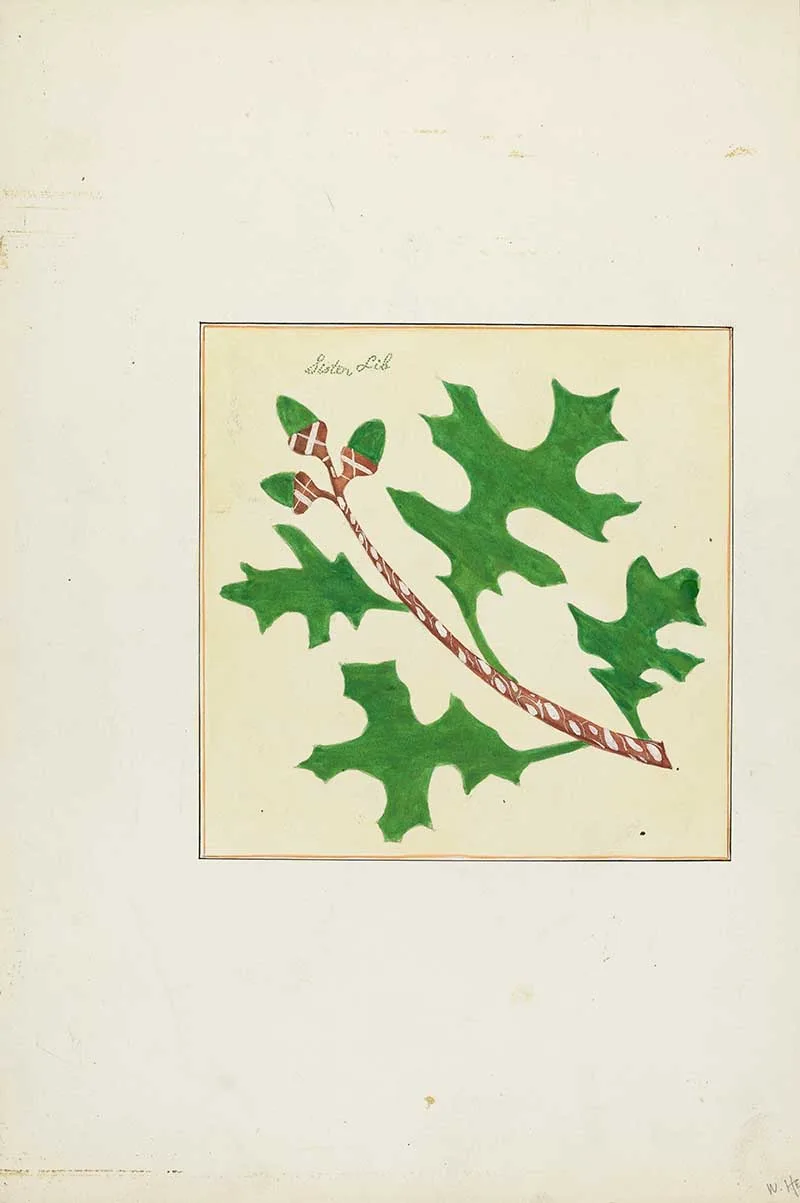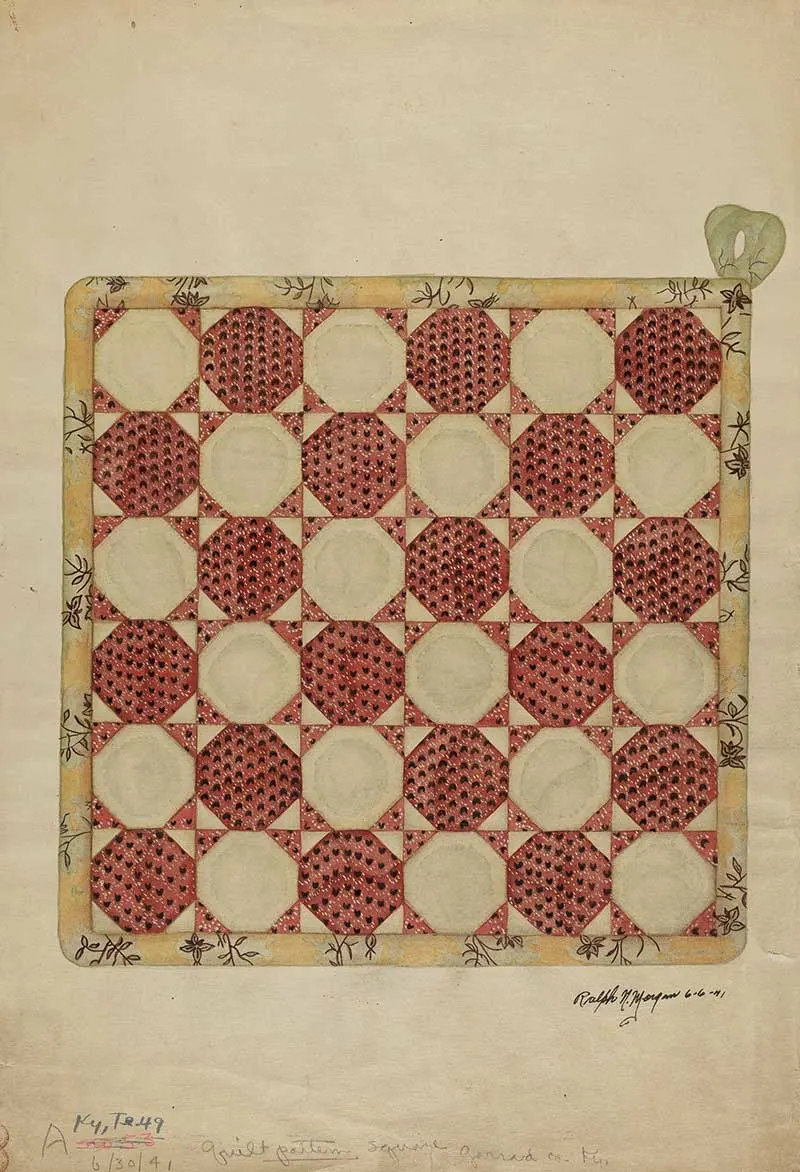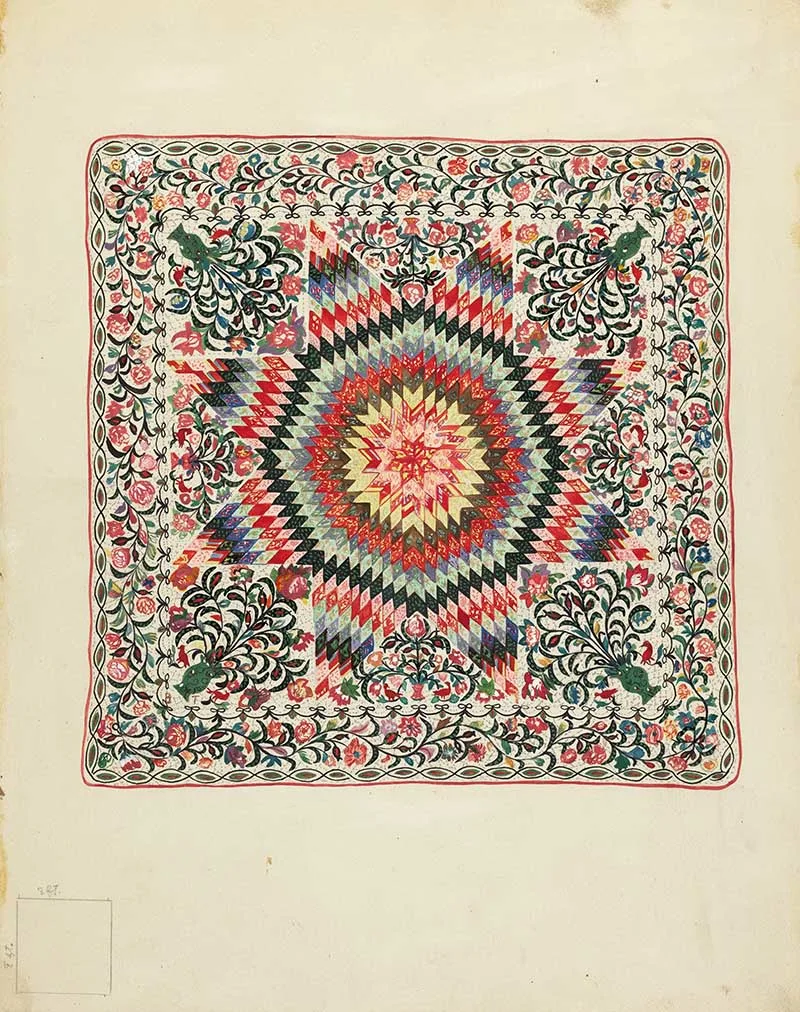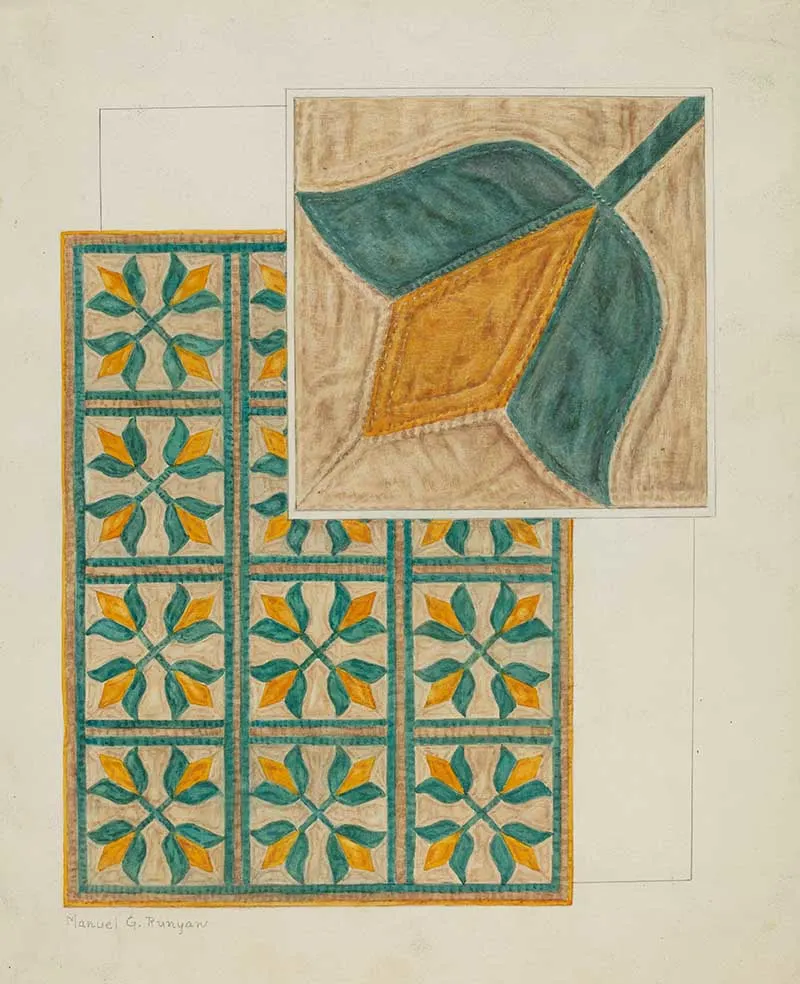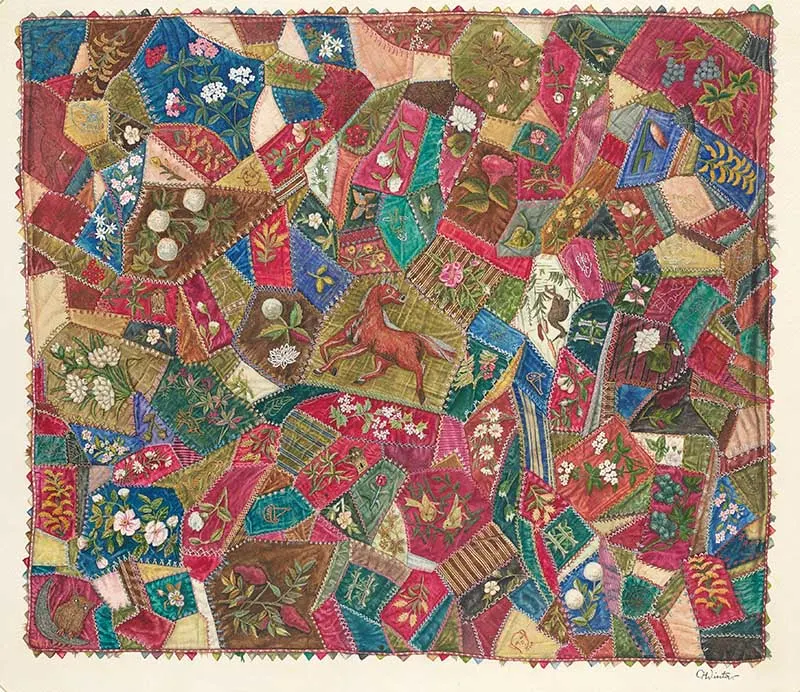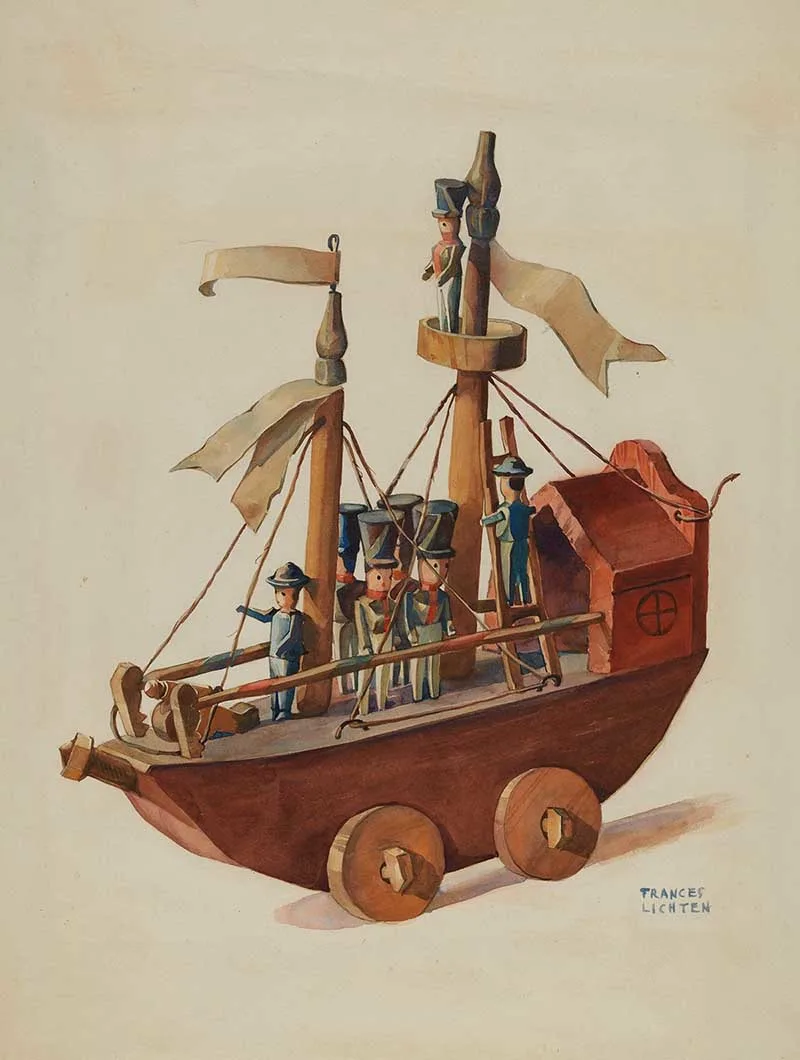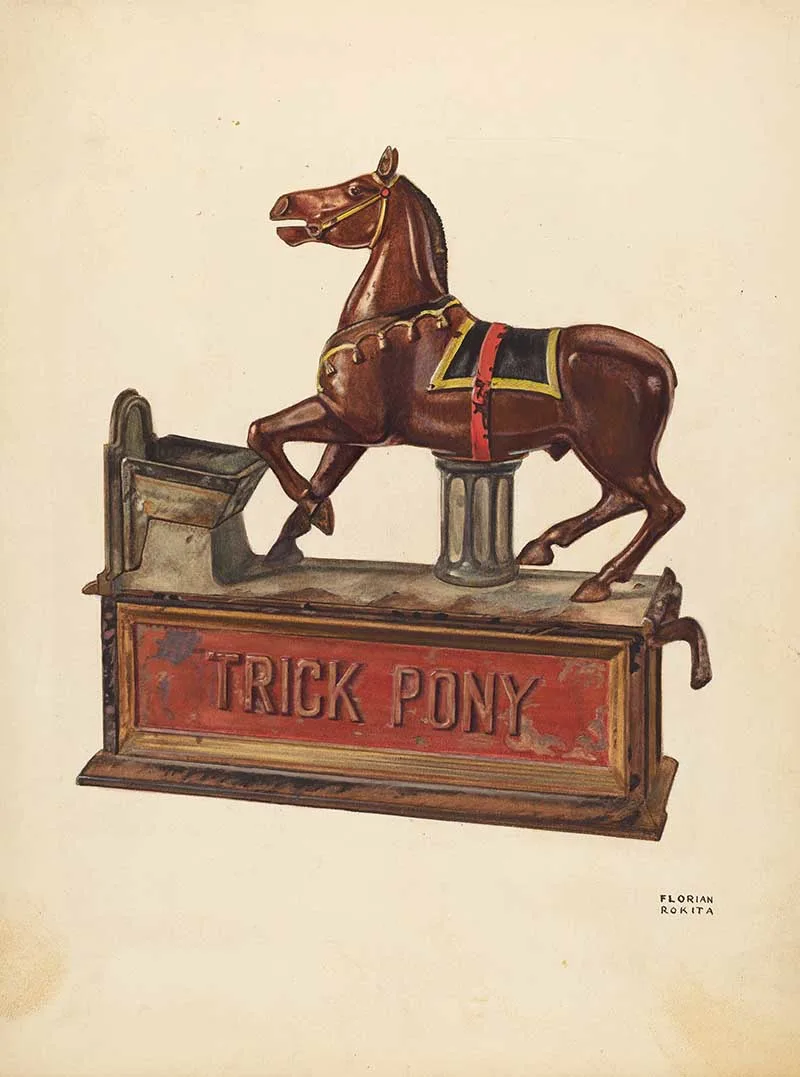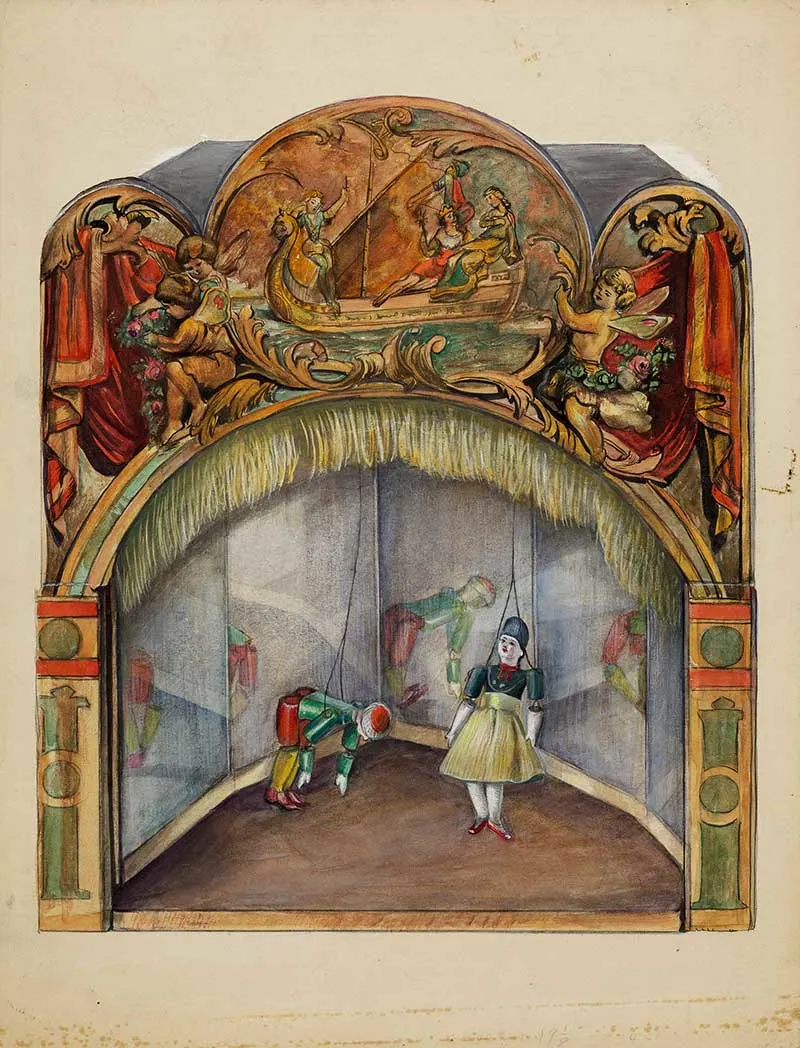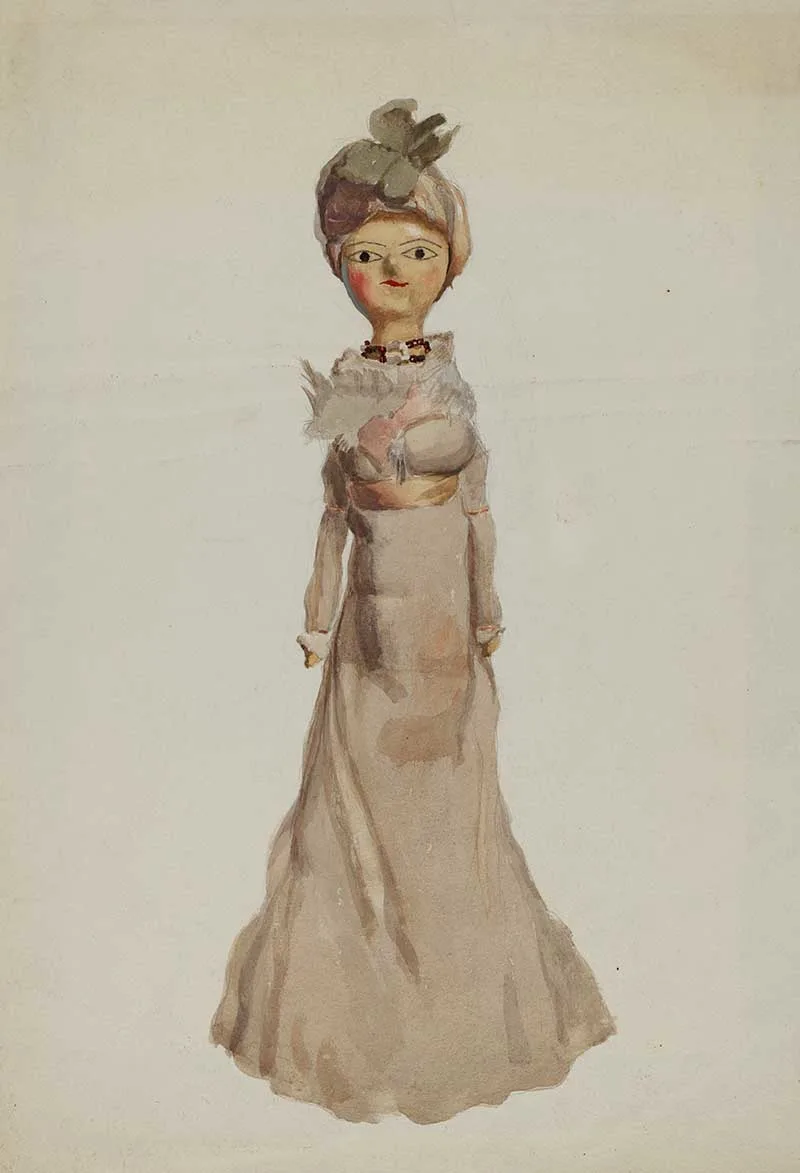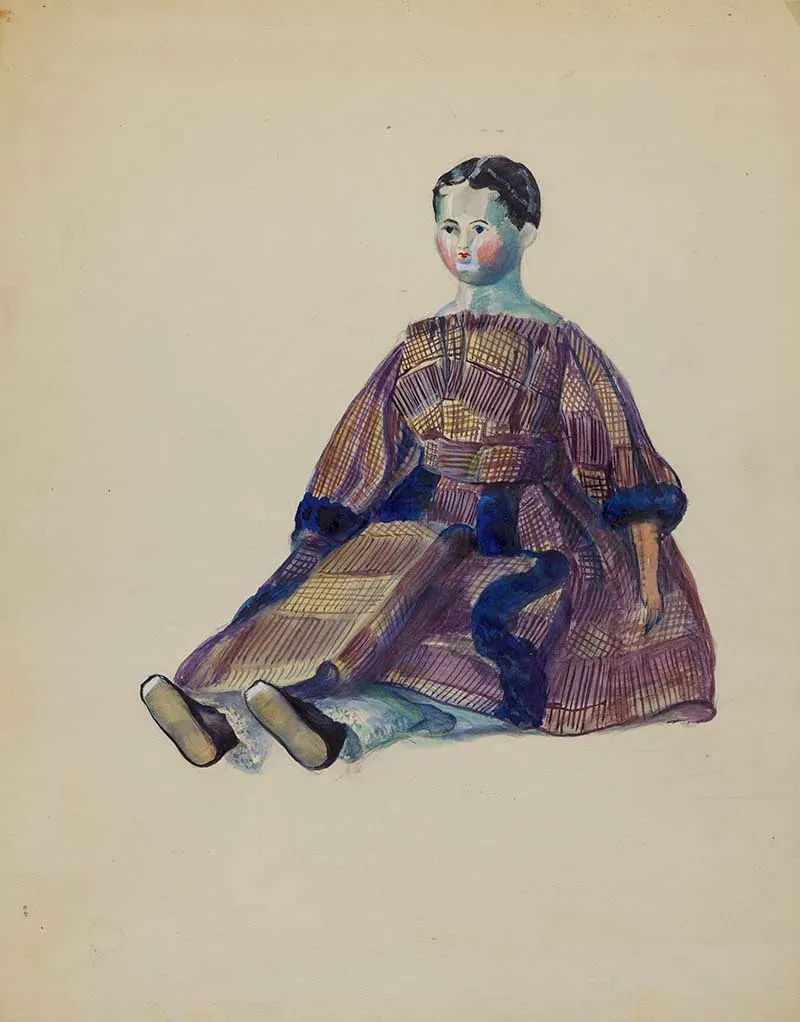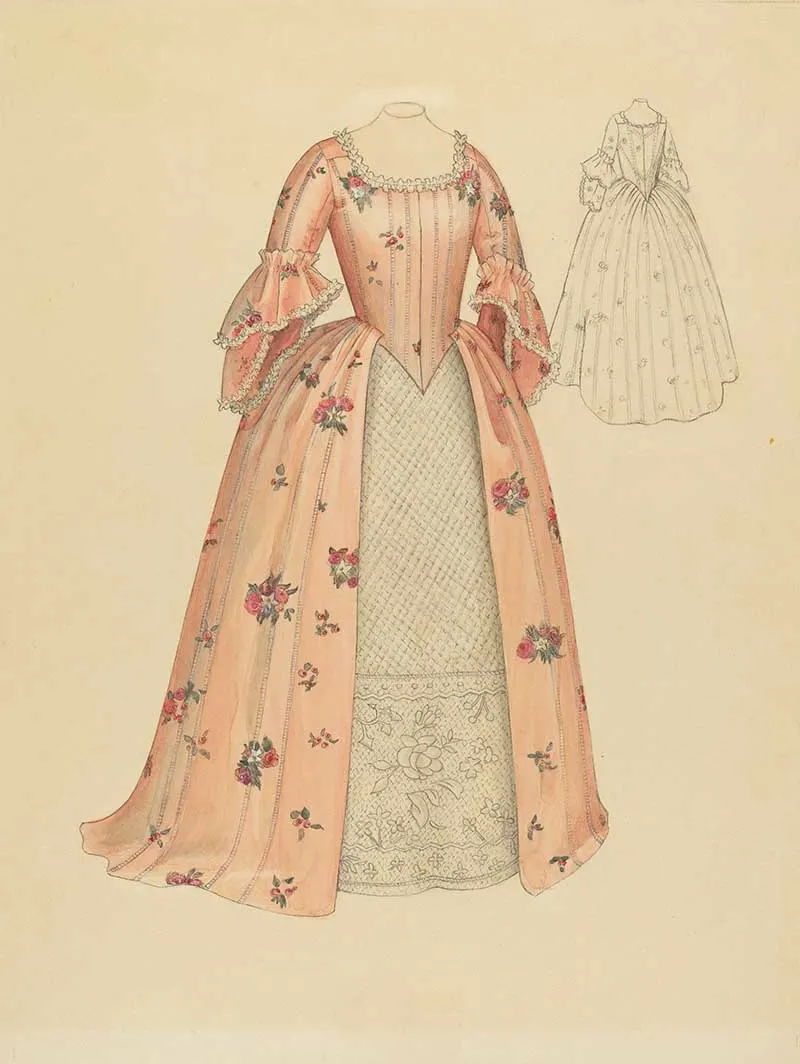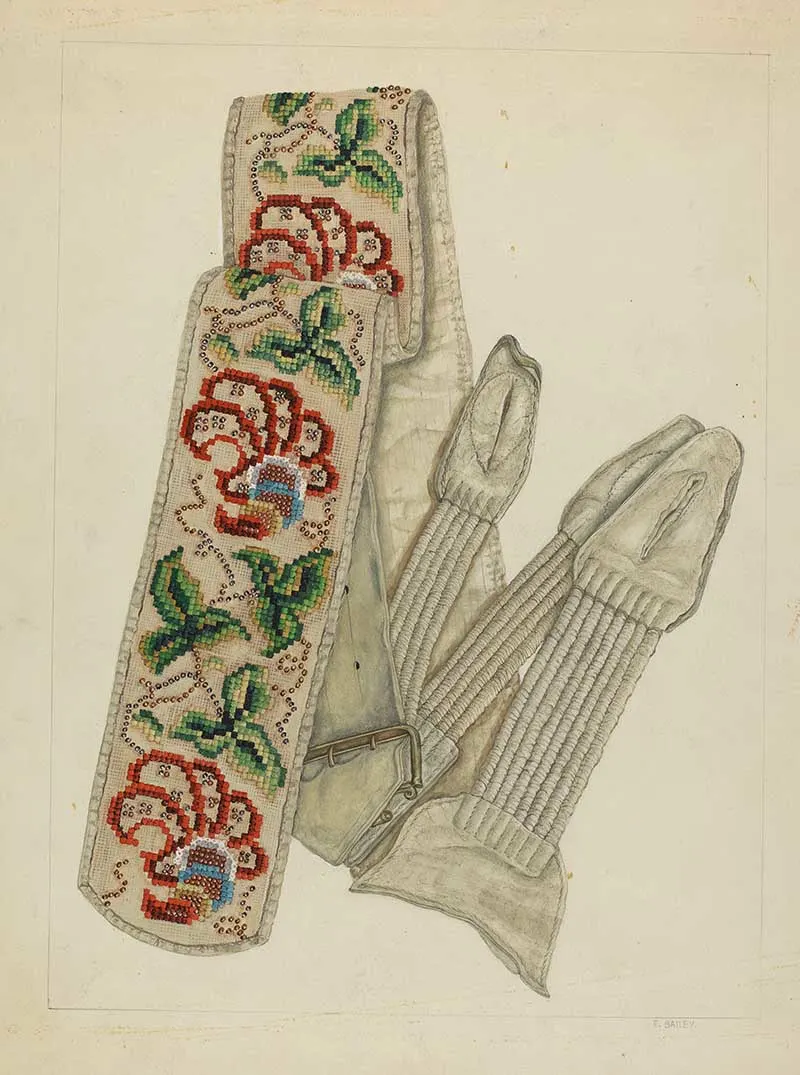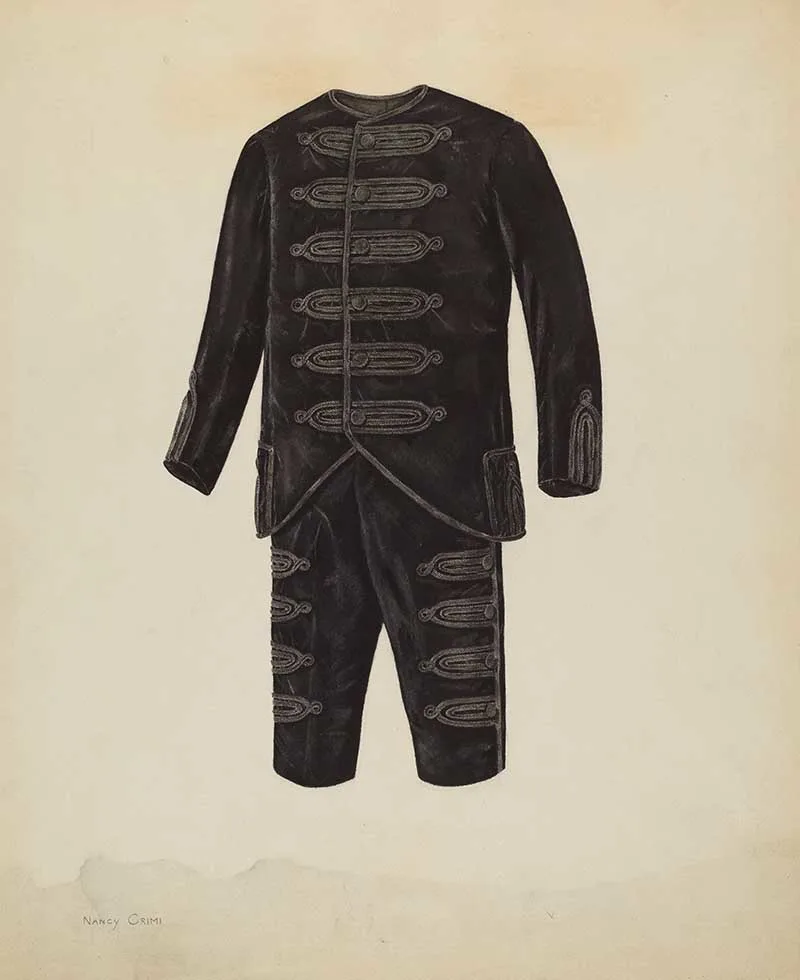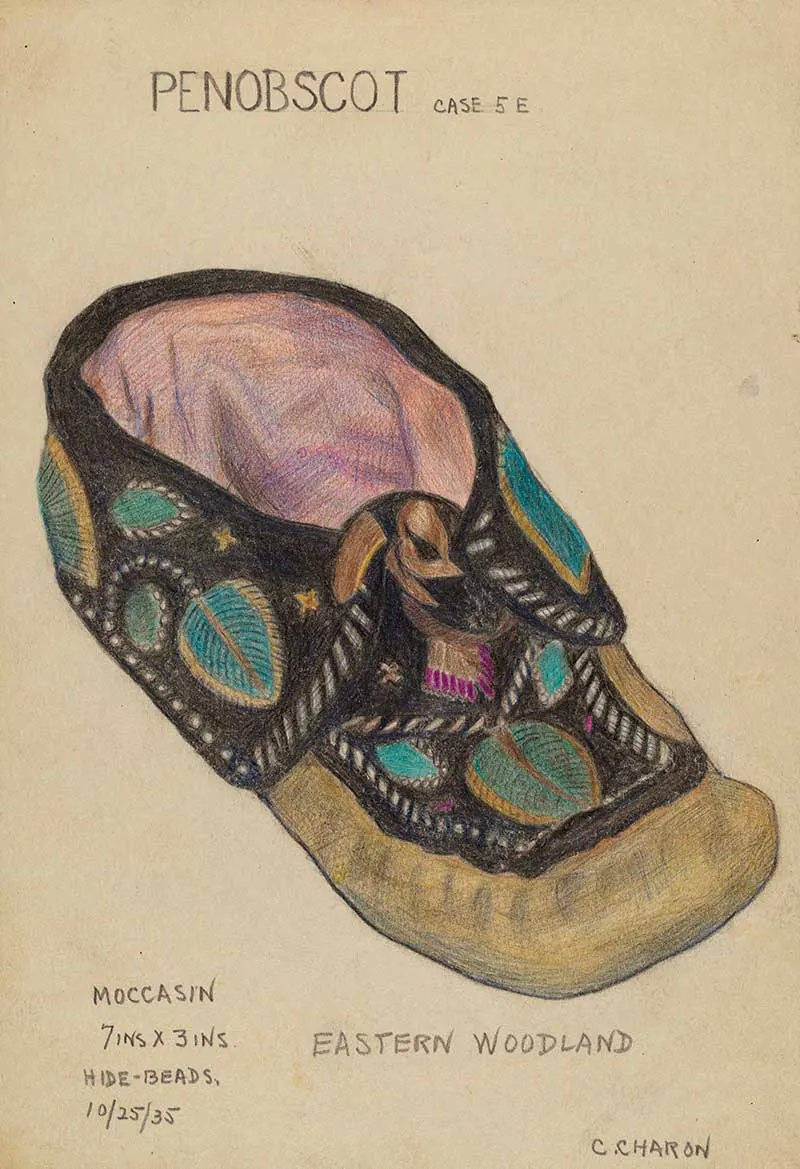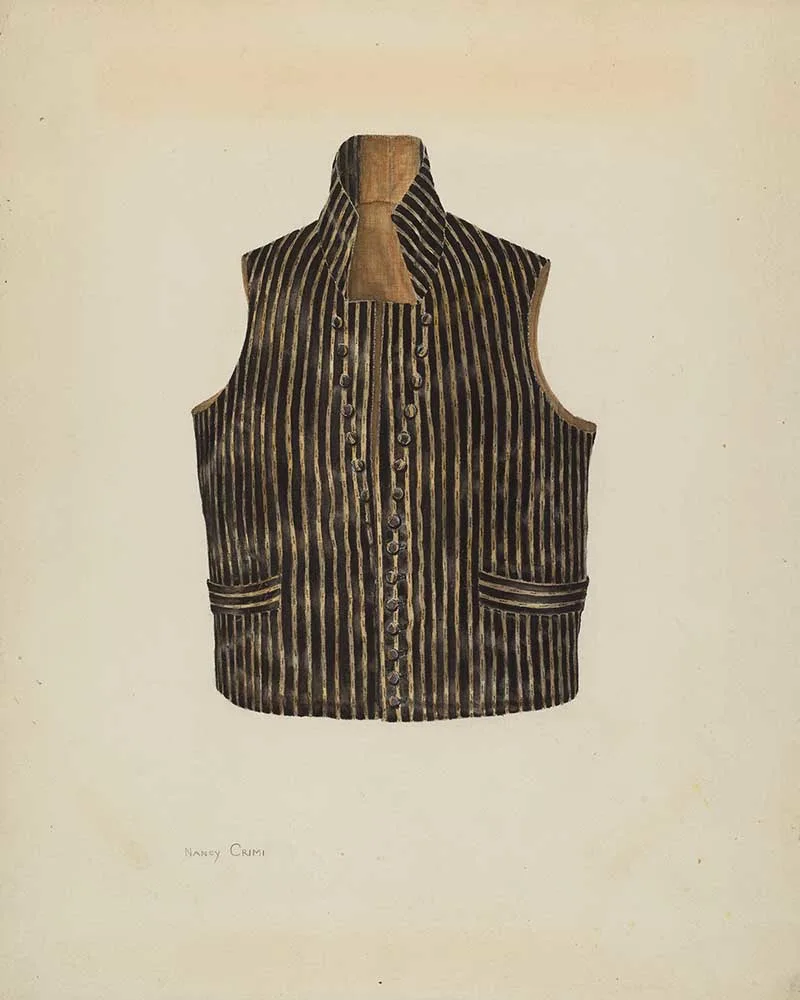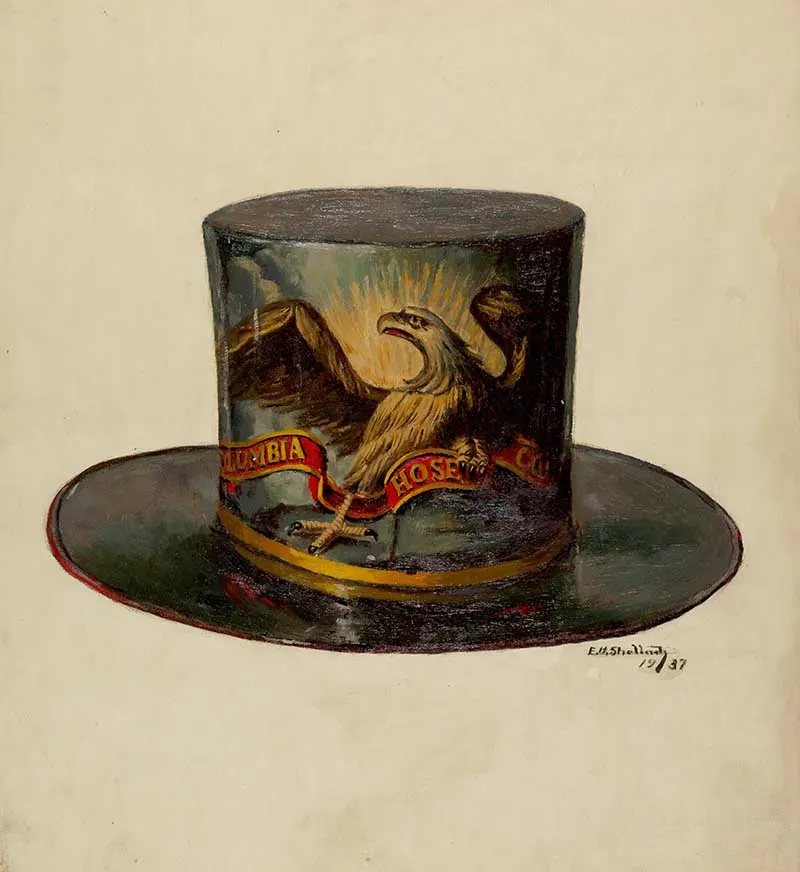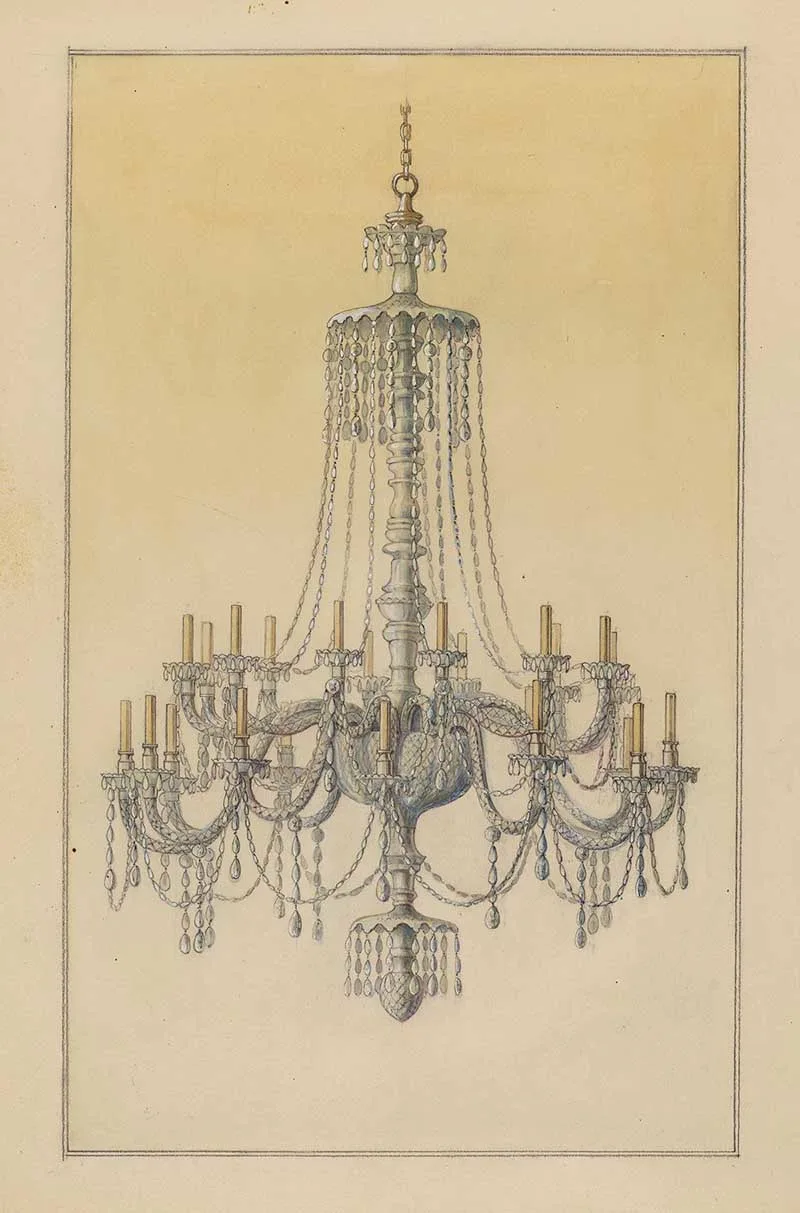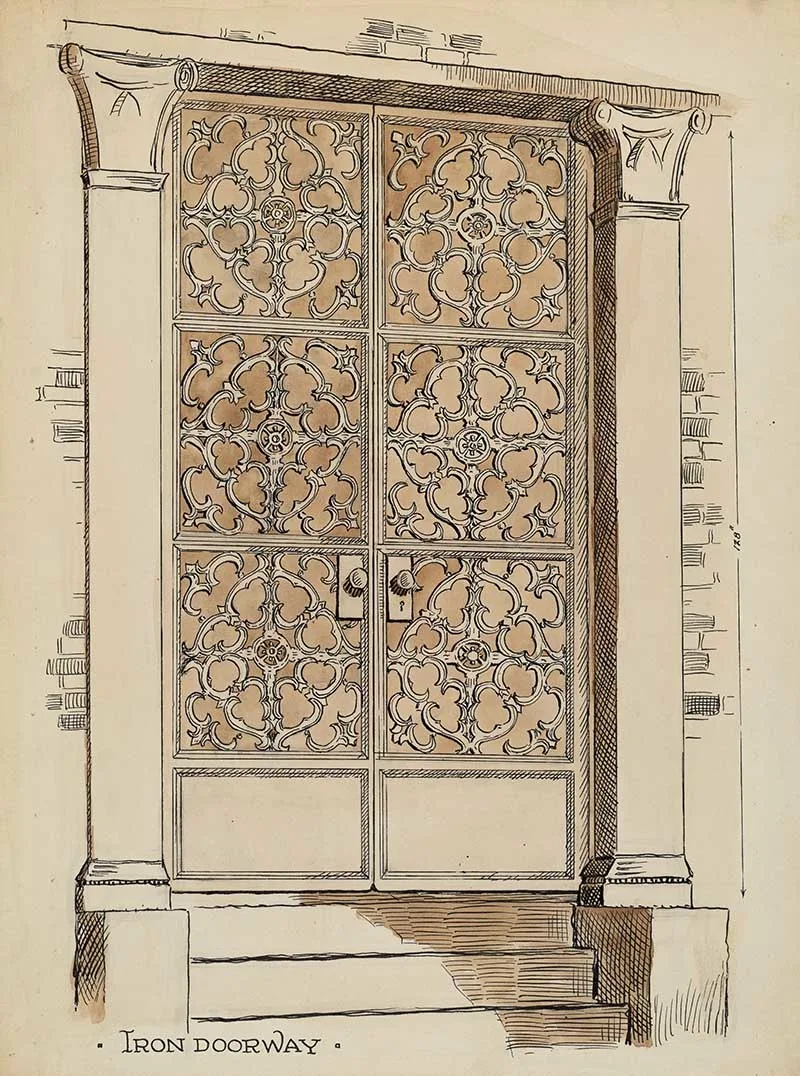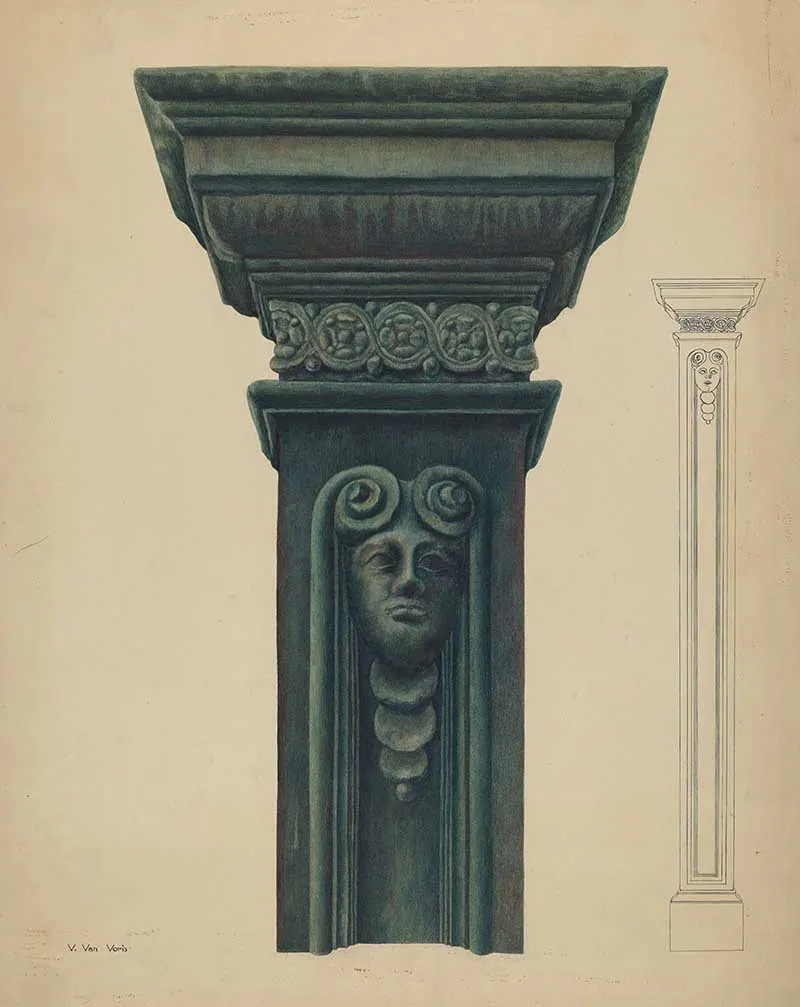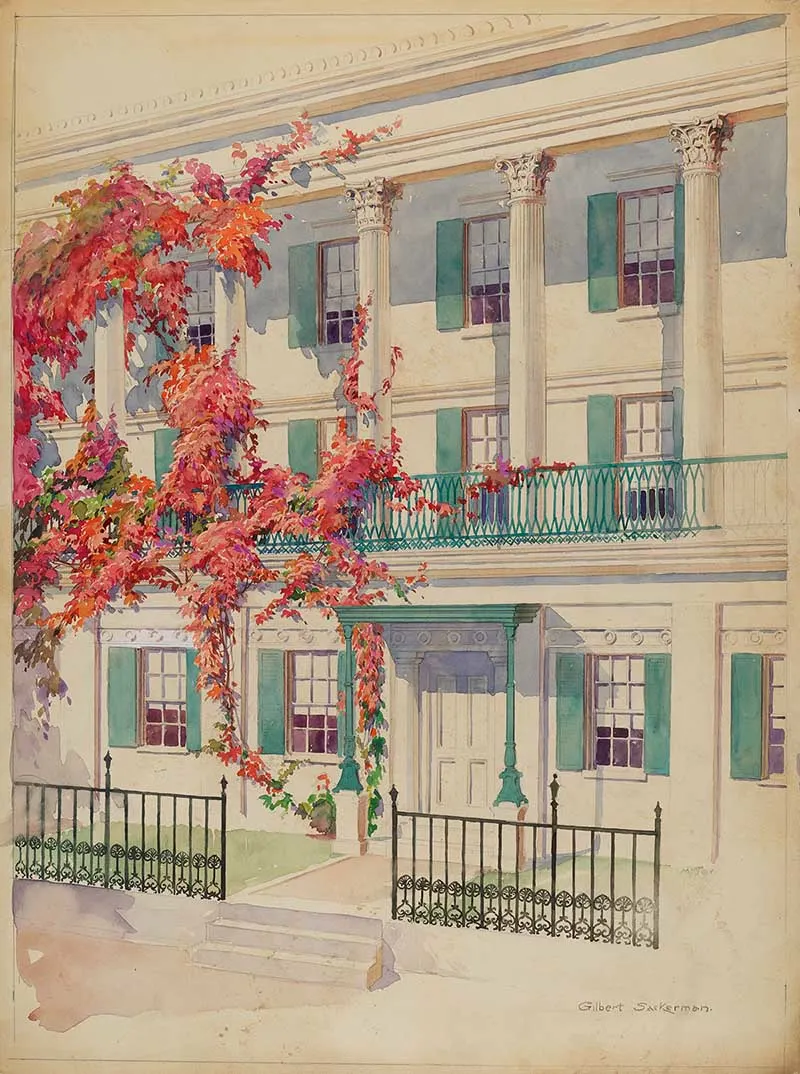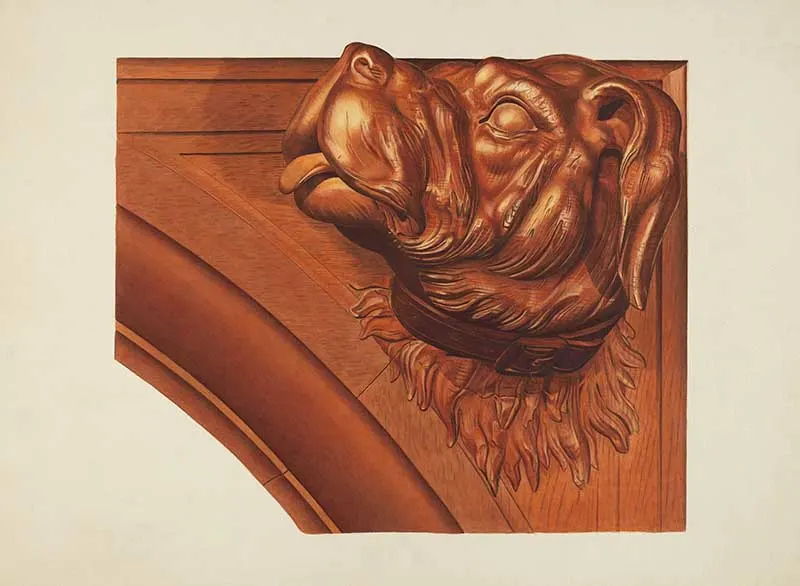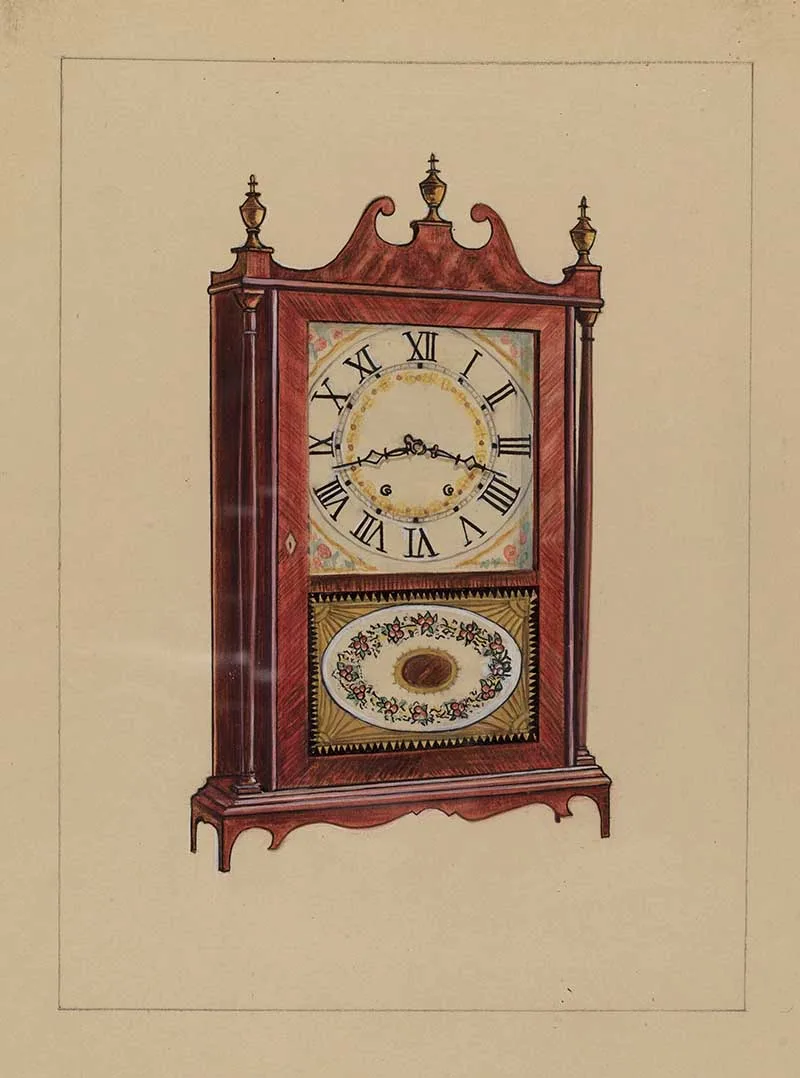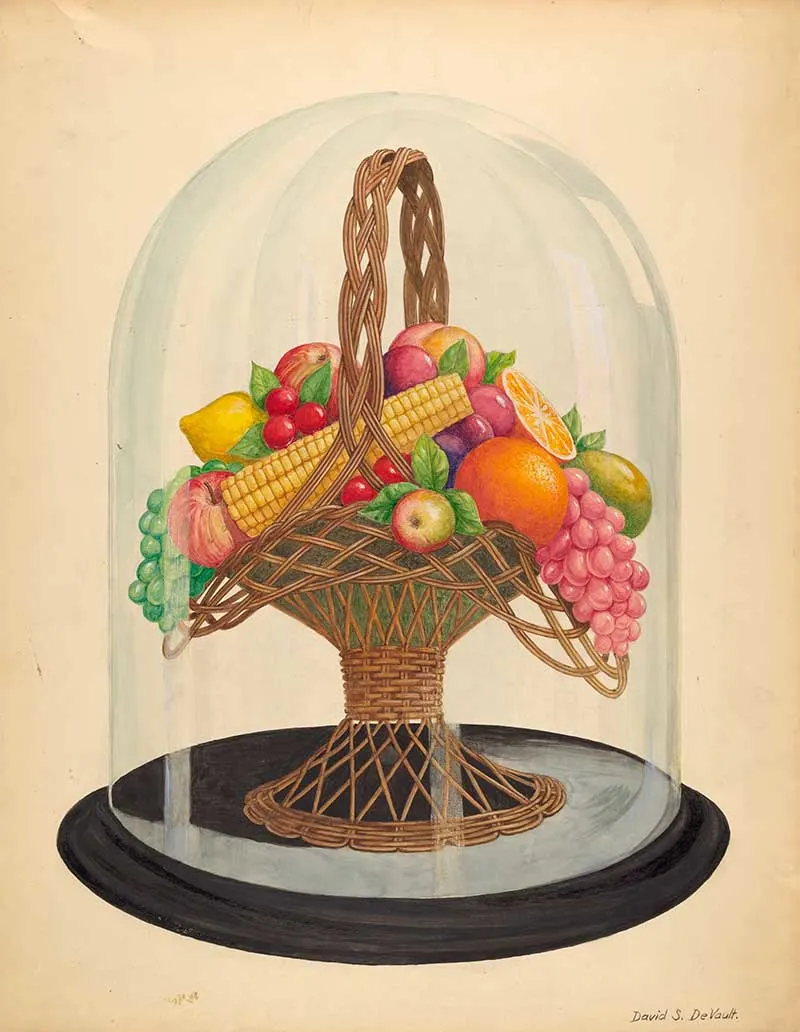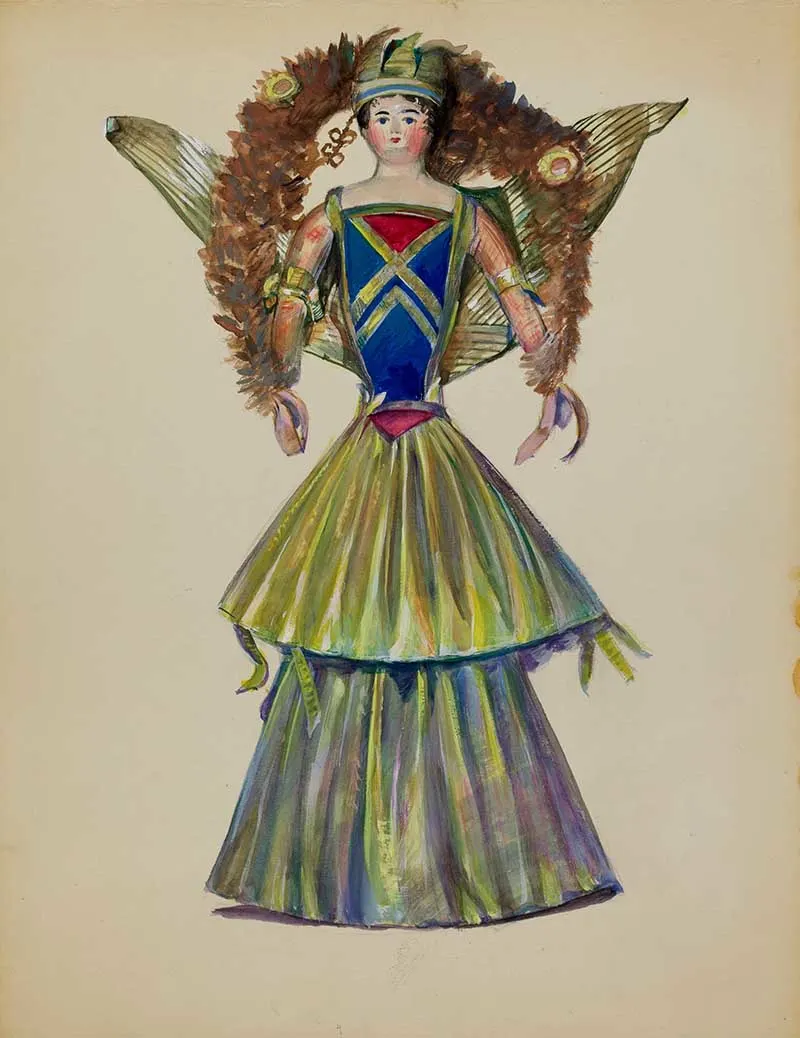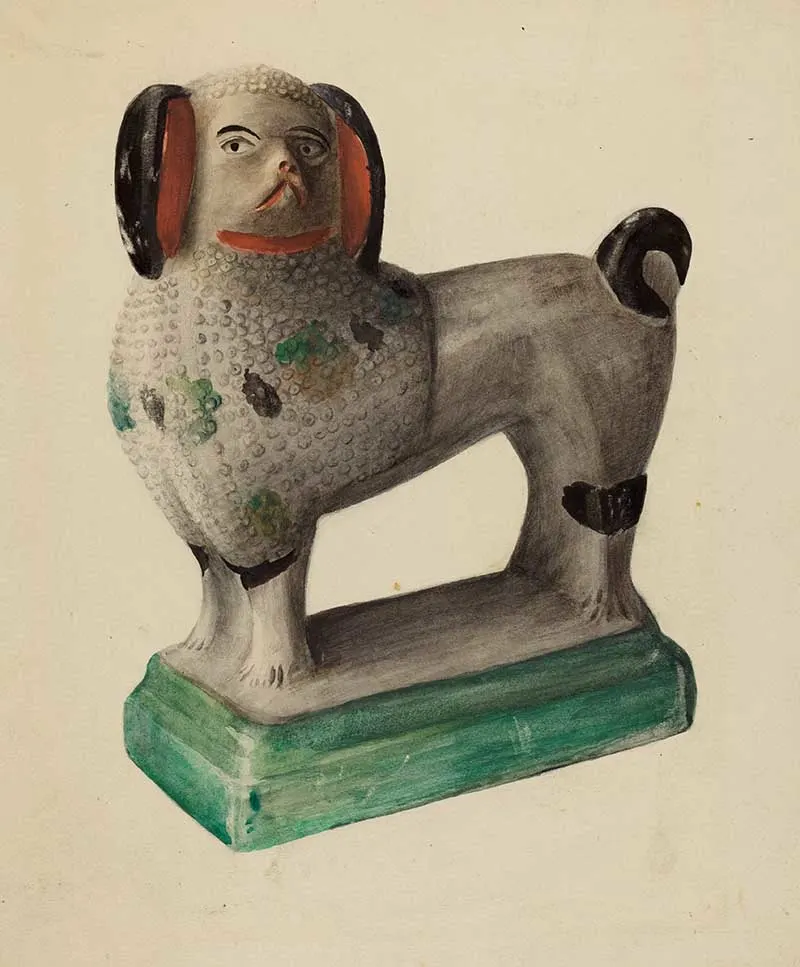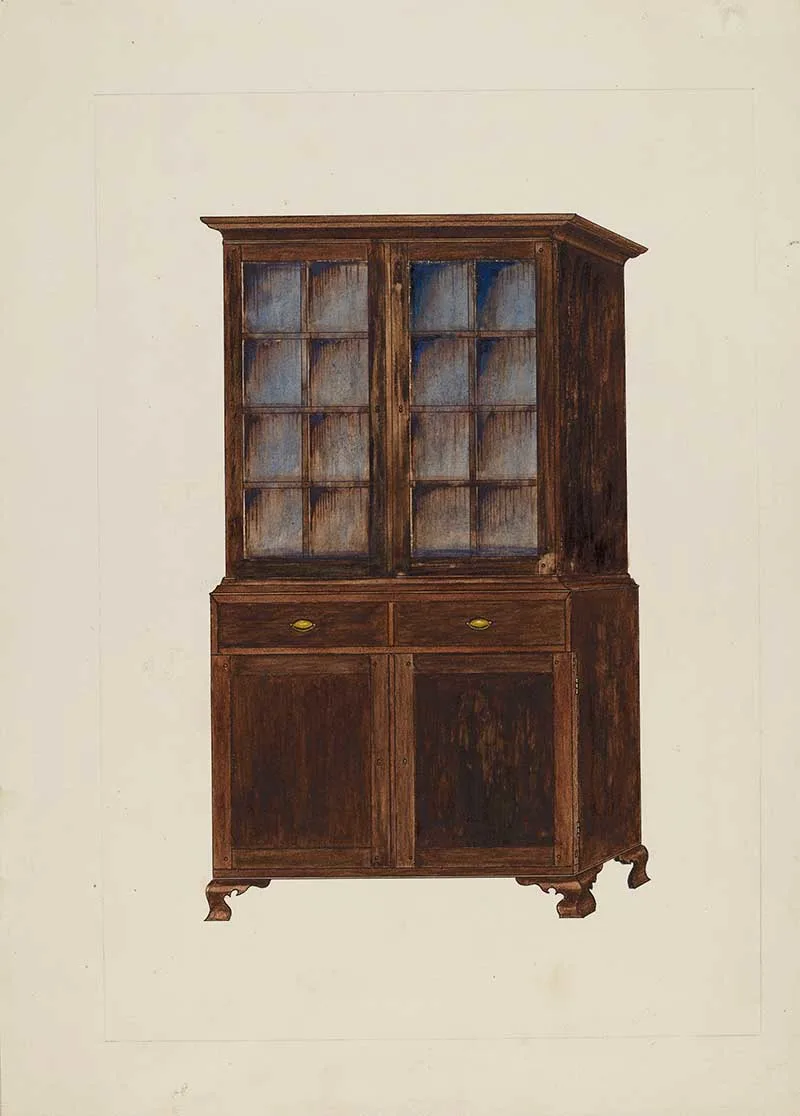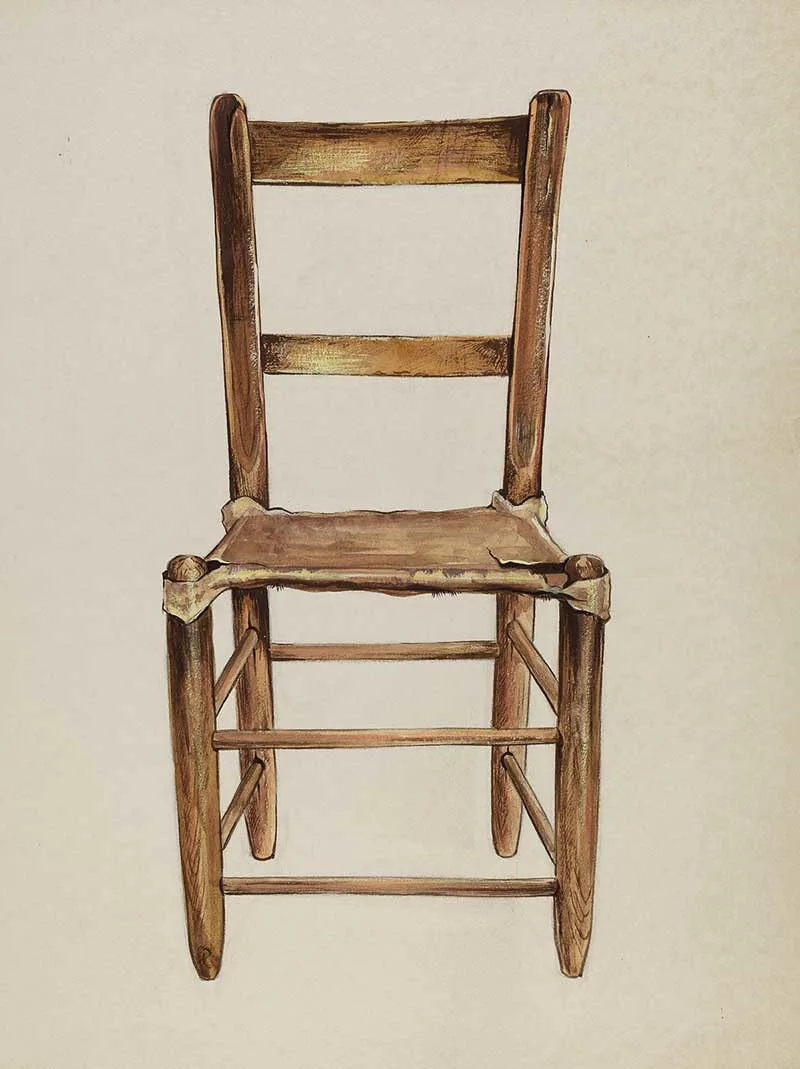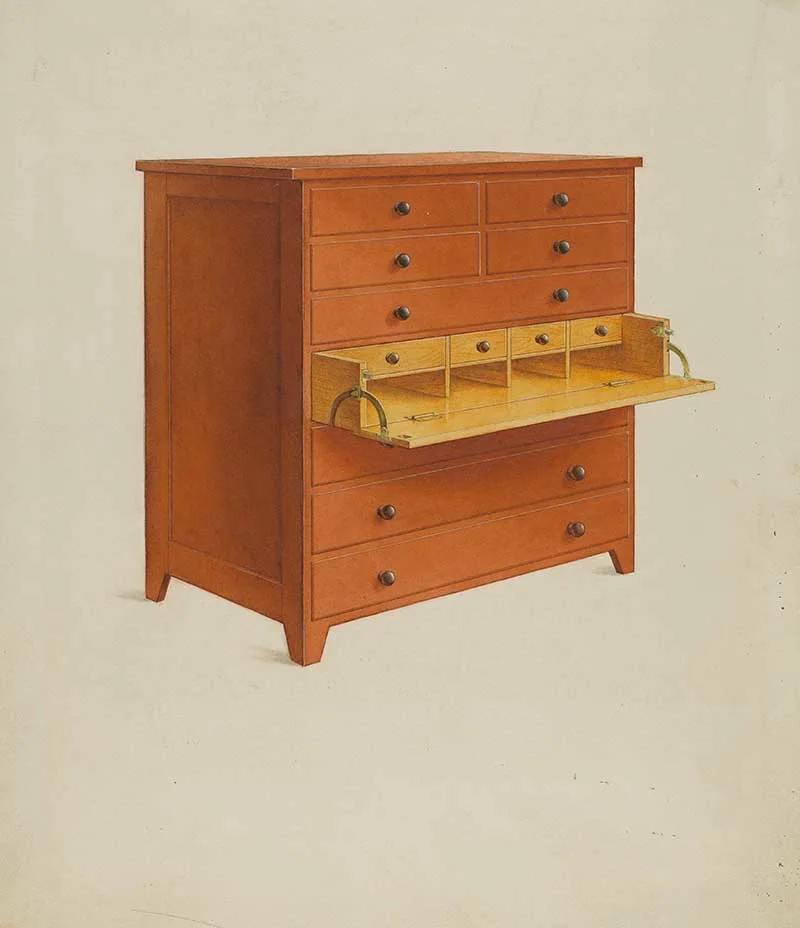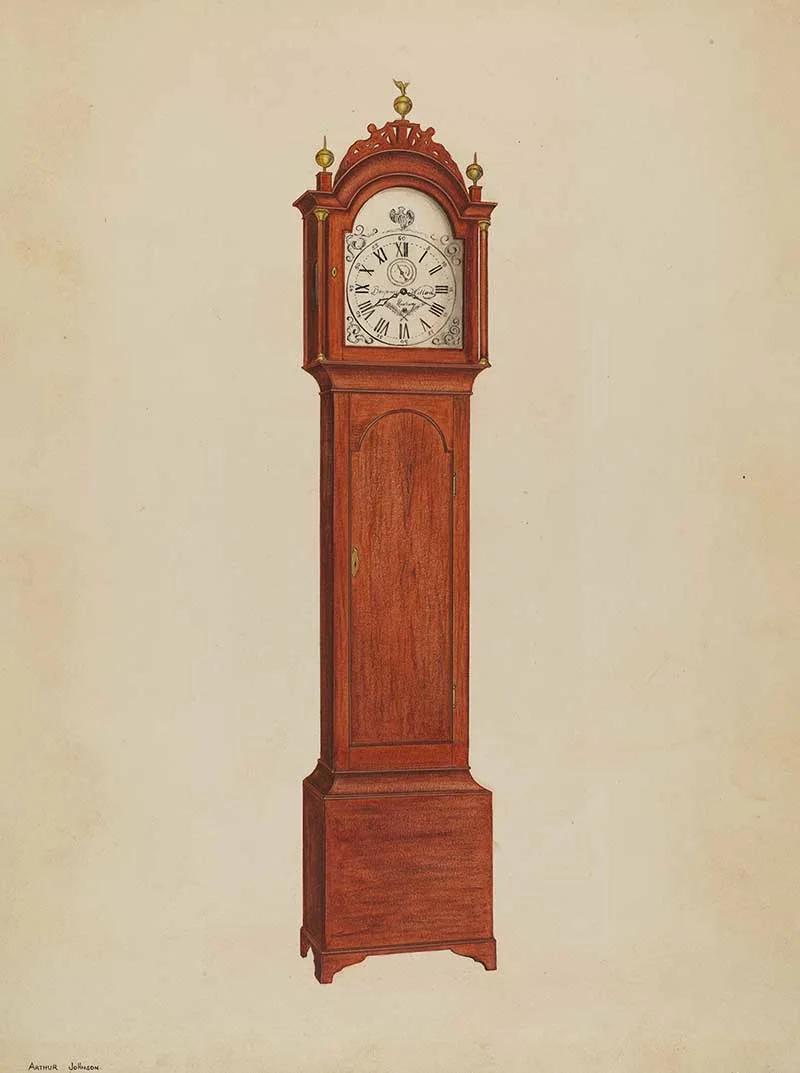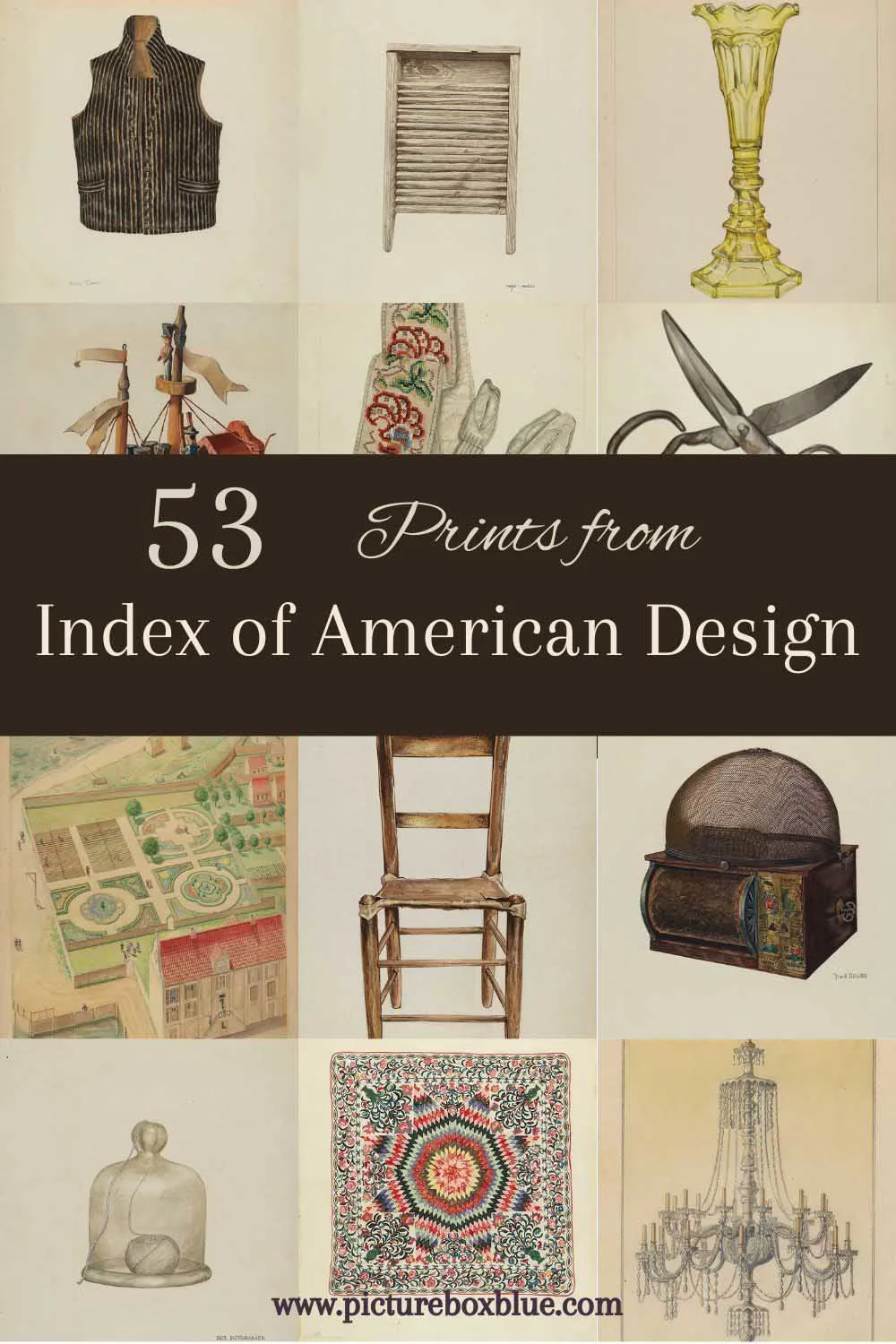Inside: Free downloadable vintage American folk art from the Index of American Design, all in the Public Domain.
During the Great Depression, the United States saw economic hardship and an unexpected blossoming of culture and art. In 1936 an ambitious project known as the “Index of American Design” took flight as part of the Federal Art Project under the Works Progress Administration (WPA).
The Index of American Design aimed to document and preserve the rich tapestry of American folk art and traditional crafts and provide employment opportunities for artists struggling during the Depression.
Enlisting the help of over 1000 artists nationwide, the Index set about meticulously documenting a wide array of objects that embodied America’s cultural heritage. These included items from domestic life, traditional wear, toys, tools, and a vast range of folk art. Detailed watercolour illustrations capture these items.
From humble quilts stitched together by the firelight to elaborately carved furniture made by skilled craftspeople. The Index was not just an archive of objects. It celebrated the American spirit, a testament to the nation’s artistry and ingenuity.
Whether you’re an art enthusiast, a history buff, or simply curious, there’s something in the Index for you.
Illustrations From The Index of American Design 1936
The following is s small sample of the beautiful American folk art illustrations featured in the index. All the prints are in the Public Domain.
To download them click on the title above the illustration. A higher-resolution image will open in a new tab on your browser. You can then save or print that watercolour.
Celebrating Simplicity – The Beauty of Everyday Life
Illustrations of household kitchen artefacts include vases, crockery, and antique silverware.
Watercolor, graphite, and gouache painting of a yellow coloured glass vase by Janet Riza.
Green covered glass sugar bowl painting by William McAuley.
Wooden butter moulds, often bell-shaped, were specially designed to contain a pound of butter. The butter would adapt its shape. And the intricate carving within the mould imprints a unique pattern onto the butter’s surface.
Beyond their practical use, these butter moulds were seen as artistic expression for the farmers and craftsmen who made them. The designs etched into these moulds were varied and often depicted themes from rural life. Wheat sheaves, pineapples, and thistles were common motifs, as were cows, flowers, and birds.
Index of American Design watercolour of a ball of string in a glass dome dispenser by Paul Poffinbarger.
Pottery pitcher with a simple bird motif by John Tarantino.
West Troy Pottery, based in 19th century New York, was renowned for its durable, everyday stoneware items. Characterized by distinctive cobalt blue decorations and functional designs, their pieces were widely used in homes and businesses. Though the company is no longer active, its products have become valuable collectables.
A pair of silver soup ladles by John R. Towers.
Everyday Artistry: Household Tools in the Index of American Design
Illustrations of household tools. From sewing machines and lanterns to flycatchers, these renderings provided insights into the practicalities of American life in 1936. Each device, integral to daily tasks, reflects the ingenuity of the era when hands-on skills and durability were paramount.
Hand cranked sewing machine 1936.
On the site there are many patent art prints for everyday tools including a sewing machine.
I’ve never seen a contraption like this one and I’m not sure how it works but I’m intrigued.
A washboard is a tool designed for hand washing clothing. Clothes are soaked in hot soapy water in a washtub, then squeezed against the ridged surface of the washboard. This forces the cleansing fluid through the cloth to carry away dirt.
A lovely colourful watercolour of a vintage fire bucket by Carl Buergerniss.
A fluting iron was used to press clothing, specifically those with pleats. The machine is iron, with brass rollers and a wooden handle.
Manual burr grinders are turned by hand, rotating one grinding surface against the other. Coffee mills have a handle, providing leverage for the many turns required to grind enough coffee for a cup. The ground coffee is collected in a container drawer of the mill.
Blooming Past: Garden Designs in the Index of American Design
Watercolour paintings of garden designs are featured in the Index of American Design. This unique collection takes us back to the 1930s, offering insights into grand estate gardens and humble homegrown patches.
These illustrations celebrate diverse gardening styles, from formal, European-inspired layouts to rustic, free-form cottage gardens. Additionally, they highlight garden architecture and ornamentation, revealing the blend of aesthetic and practical purposes in historical gardening.
Print 14: P. Stuyvesant Estate
P. Stuyvesant Estate “Petersfield”
The Stuyvesant family was a prominent and influential family in early New York history.
Print 15: Hayes and Thompson Estate
A watercolour garden illustration from the Index by George Stonehill and Gilbert Sackerman and William Merklin.
Another watercolour design print of a prominent New York garden.
Print 17: Depeyster Estate and Garden
One of three watercolour estate and garden illustrations in the Index of American Design painted by Helen Miller.
Print 18: Rutgers Estate and Garden
Painting by Helen Miller.
Sperry’s Vauxhall Gardens by George Stonehill.
Another New York estate named after one of the original Dutch settlers Jan Dyckman.
Print 22: Whitehall Estate and Gardens
Stitched Stories: Quilt Patterns in American Folk Art
Vibrant and varied quilt designs are showcased in the Index. Quilting, a cherished tradition passed down through generations, holds a unique place in American history. Each quilt is more than just a warm bedcover—it’s a piece of art, a story told through the fabric, and a testament to the skill and creativity of its maker.
In the Index, you’ll discover myriad quilting styles, reflecting the diverse cultural influences that have shaped American folk art. From classic patchwork designs to intricate applique work, these quilts illustrate this beloved craft’s evolving trends and regional variations.
Watercolour painting of an American quilt design, with pink flowers and a scalloped pink border.
Autograph quilt design of acorn and oak leaves.
Print 25: Quilt Pattern Square
It looks like this quilt pattern square is used as a pot holder.
Print 26: Patchwork & Applique Quilt
Appliqué is a sewing technique in which pieces or patches of fabric in different shapes and patterns are sewn or stuck onto a larger piece to form a picture or pattern.
Print 27: Coverlet Quilt Design
An American folk quilt design in a tulip flower pattern.
Crazy quilts are random patchworked designs of irregularly shaped fabric pieces rather than the geometric constraint of regular quilting. They are a great way to use up scraps of leftover fabric.
Playful Past: Toys in the Index of American Design
An exploration of antique toys featured in the Index of American Design. These toys, from handcrafted dolls and intricately designed dollhouses to wooden soldiers, glimpse past childhoods and cultural values.
Beyond entertainment, these artefacts served as educational tools, offering insights into societal norms and everyday life in their era.
Check out this collection of vintage board games on Picture Box Blue.
A pull along toy warship with sailors.
Print 30: Toy Bank – Trick Pony
A toy theatre with automatic dancers.
The site also has a fantastic collection of vintage paper dolls.
Fabric of Time: Vintage Clothing in the Index of American Design
The collection of vintage clothing prints. From handmade pioneer attire to Victorian gowns and early 20th-century fashion. Whether through intricate embellishments or uniform styles, these garments also express personal identity and social roles.
Ladies peach silk gown with rose motif from the index of American design.
American folk art cross-stitch decorated pair of suspenders.
A formal boys suit in black with brocade.
The moccasin is a soft leather shoe of many indigenous people of North America. But hunters, traders, and European settlers also wore them. With the beading and embroidery, this looks like a traditional American folk shoe of the indigenous people.
Men’s striped waistcoat with buttons.
Adorned Structures: Architectural Ornaments in the Index
These embellishments, from intricate colonial carvings to Art Deco motifs, reflect their era’s architectural trends and artistic tastes.
Whether hand-carved or mass-produced, each piece adds unique character to the buildings they grace. Uncover the aesthetics and craftsmanship of American architectural history in this captivating collection.
Check out the other architectural and ornament designs on the site: Owen Jones Grammar of Ornament, Abert Racinet L’ornement Polychrome and the Brighton Pavilion designs.
An ornate crystal glass bead chandelier from the Index of American Design.
Wrought and Cast Iron Doorway.
A colonnade is a row of evenly spaced columns supporting a roof, an entablature, or arches.
A wooden carved mantle ornament of a dog.
Historic Keepsakes: Trinkets and Ornaments
This collection of prints highlights a range of household items, from clocks to whimsical figurines, reflecting the creativity of artisans across different periods in American history. Beyond mere decoration, these pieces provide insights into trade, aesthetics, and everyday life of their time.
Print 45: American Shelf Clock
Ornament of wax fruit under a glass dome.
Print 48: German Prince Charles Spaniel
Functional Elegance: Furniture in the Index of American Design
American furniture in the Index, from the simple robustness of colonial pieces to the ornate designs of the Victorian era and the sleek lines of mid-century modern styles, each piece provides a window into its era’s lifestyle, taste, and craft.
A simple wooden side chair with a leather sling seat.
Shaker furniture, created by the religious sect known as the Shakers, is admired for its simplicity, functionality, and excellent craftsmanship.
Minimalistic in design, it avoids decoration, emphasizing clean lines and utility instead. Shaker furniture is commonly crafted from cherry, maple, and pine wood. Its designs, focused on lightweight and multi-use characteristics, makes it still popular today.
Conclusion & Other Cultural Collections
I hope you enjoyed this snippet of watercolour illustrations from the vast Index of American Design collection. Each item, from the smallest household trinket to the most elaborate architectural ornament, is a piece of the larger mosaic that forms our collective past.
This collection is a testament to the ingenuity and skill of generations of artisans, craftsmen, and everyday Americans. It showcases how style, function, and craft have evolved, vividly depicting the ordinary.
If you want to print out any of these paintings at home, check out this post on printing on watercolour paper.
A fun use for these vintage images would be in a DIY shadow box, Joseph Cornell style.
Related Posts
Other vintage print collections on the site that focus on culture and aspects of every day from the past to check out include:
- Vintage Nautical Images
- American Type Founders Catalogue
- Mrs Beaton’s Cookbook
- Vintage circus posters
- Vintage Art Supplies
- Old Airline Posters
If you fancy, you can Buy Me A Coffee Here.

